
If you’re searching for engaging and hands-on base ten activities for your first grade classroom, you’ll love our Place Value Stacking Cups. This interactive activity uses number-labeled cups and base ten block visuals to help students understand tens and ones in a way that’s both visual and tactile. Teaching place value doesn’t have to be boring — in fact, it can be stacked with fun!
Be sure to check out 20 Most Popular Place Value Games and Printables after you grab these stacking cups!
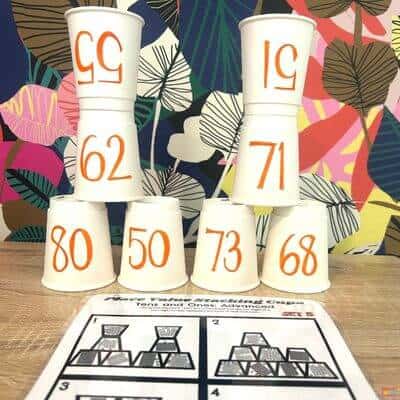
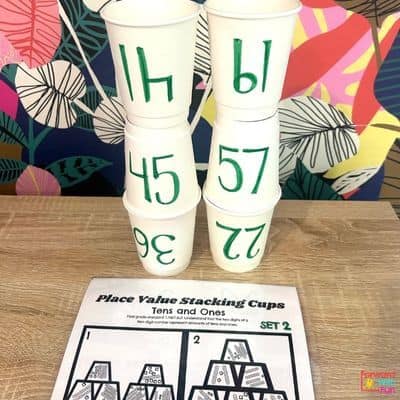
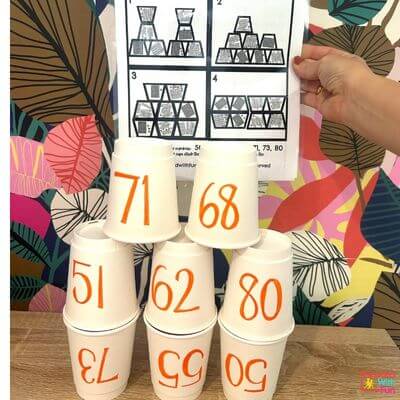
*As an amazon affiliate I may receive a teensy commission if you buy something from one of the links in this post, at no additional cost to you. Thank you.
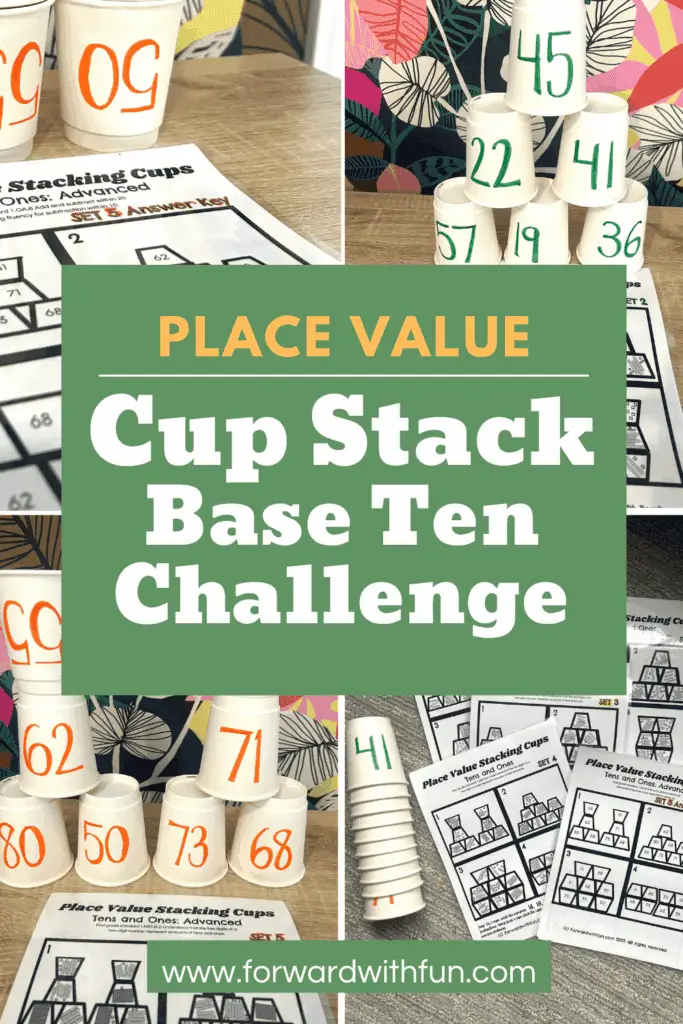
Place Value Stacking Cups are a classroom activity designed to build foundational number sense. Students are given a set of paper cups labeled with different two-digit numbers. Using printable task cards with base ten block illustrations (representing tens and ones), students match the correct number to the image — then stack the corresponding cup in the correct position to match the picture.
I recommend using these cups to meet 1st grade math standard: 1.NBT.B.2: Understand that the two digits of a two-digit number represent amounts of tens and ones and subsequent place value standards. The cups can also be used with kindergarten and early second grade.
This activity not only reinforces counting and number identification but also strengthens your students’ understanding of the base ten system. And let’s face it, anything involving stacking cups is an instant win in the classroom!
Simple setup, powerful learning.
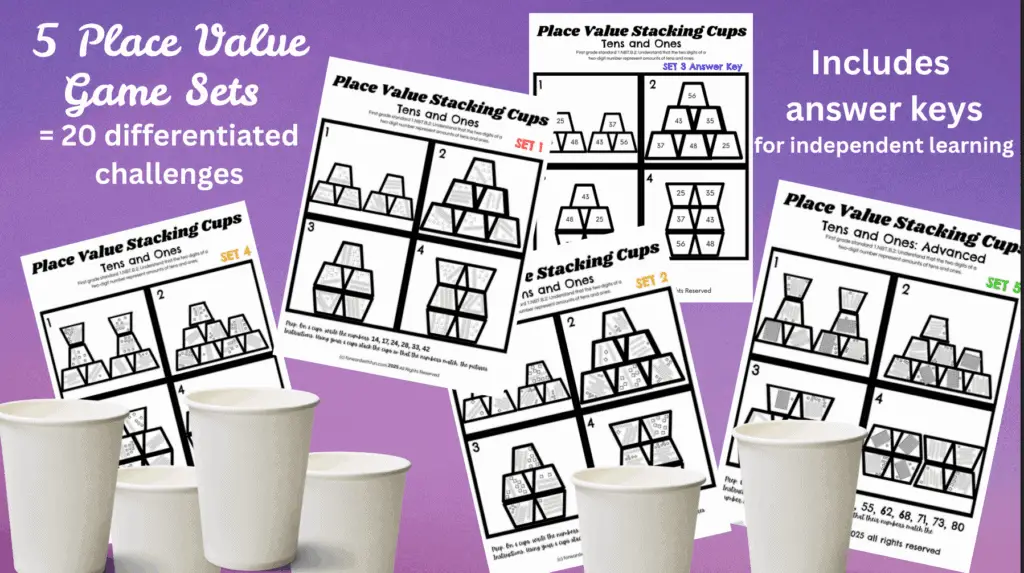
Base ten activities are essential for developing number sense in the early grades, but they don’t have to be repetitive or worksheet-heavy. Our Place Value Stacking Cups bring a new level of excitement to place value practice and make math centers something your students look forward to.
Ready to stack up the learning? Grab your Place Value Stacking Cups below! Bundle to save.
If your students love Place Value Stacking Cups, don’t stop there. We’ve created a whole series of cup stacking resources that turn skill practice into exciting, interactive play:
Each one is designed with the same hands-on, stackable format that makes learning stick. Fun fact: the addition and subtraction sets use the SAME CUPS. So the prep is halved!
If you're looking for place value game printables, you've come to the right place! Place value is a foundational math concept that helps students understand how numbers work, and making it fun through games can significantly enhance comprehension and retention. All of these games will be base ten activities perfect for kindergarten and first grade that focus on tens, one, and sometimes hundreds.
In this post, we’ll cover:
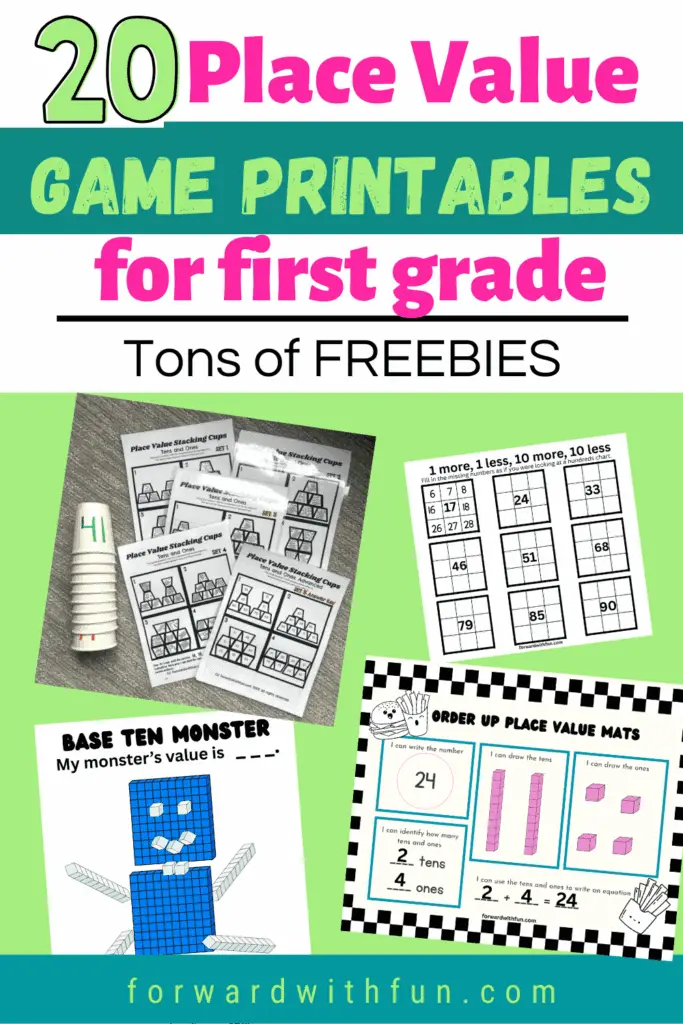
*As an amazon affiliate I may receive a teensy commission if you buy something from one of the links in this post, at no additional cost to you. Thank you.
Place value refers to the value of each digit in a number based on its position. For example, in the number 3,482, the digit 3 represents 3,000 because it is in the thousands place, while the 8 represents 80 because it is in the tens place. Kids usually are introduced to place value in first grade.
Understanding place value helps children:
When we say "base ten activities" we mean that our number system is organized into groups of 10's and ones. As we get into higher numbers, they're still grouped into groups of 10, like ten 10's is one hundred. Kids are learning to manipulate our base ten number system when they learn place value.
Teaching place value should be hands-on, visual, and interactive. To really build number sense and engage children in learning, I recommend using any of the super fun place value game printables listed in this article.
Here are some tips to ensure success:
Place value is covered in several Common Core State Standards (CCSS) for mathematics. Some key standards include:
These standards emphasize understanding the structure of numbers and lay the groundwork for future math success. How? Well, if kids can break down larger numbers into their easier to manipulate parts, they're going to be able to do mental math of all kinds: addition, subtraction, multiplication, and division.
Place value knowledge allows us to build number sense strategies that go beyond the common arithmetic algorithm, so that kids can solve problems with more algebraic solutions. For example, we used to solve a problem like this 85+26 by stacking the numbers, adding the ones, carrying the ten, and then writing the number of tens and ones. This does use some place value knowledge. However, in today's world, kids are encourage to really break down the numbers. The ones in this math problem add up to 11 or 10+1. The tens add up to 100. We can easily solve the problem in our head of 100 + 10 + 1 = 11 with knowledge of place value!
Here’s a list of fun, teacher-approved, and printable place value games for first grade students using objects/manipulatives you most likely have around the house or classroom. Most of these games have printables that go with them, but some can be played with just materials and a white board! Many games can be played as early as kindergarten and late as second grade.


Our newest STEM cup stacking challenge featuring place value. These place value printables are a game kids BEG to play. All you need are paper cups, a few minutes to print your challenge sheets and write those numbers on your cups. Then you have instant differentiated place value games for a whole group of learners. This would be an epic math center game.
Looking for more math stacking cups? Look no further than our addition stacking cups, and subtraction stacking cups.
Print and laminate our super Kawaii place value mats and number flashcards. Each card has an order for a Kawaii food that the kids break down on their mat, like in the sample below.
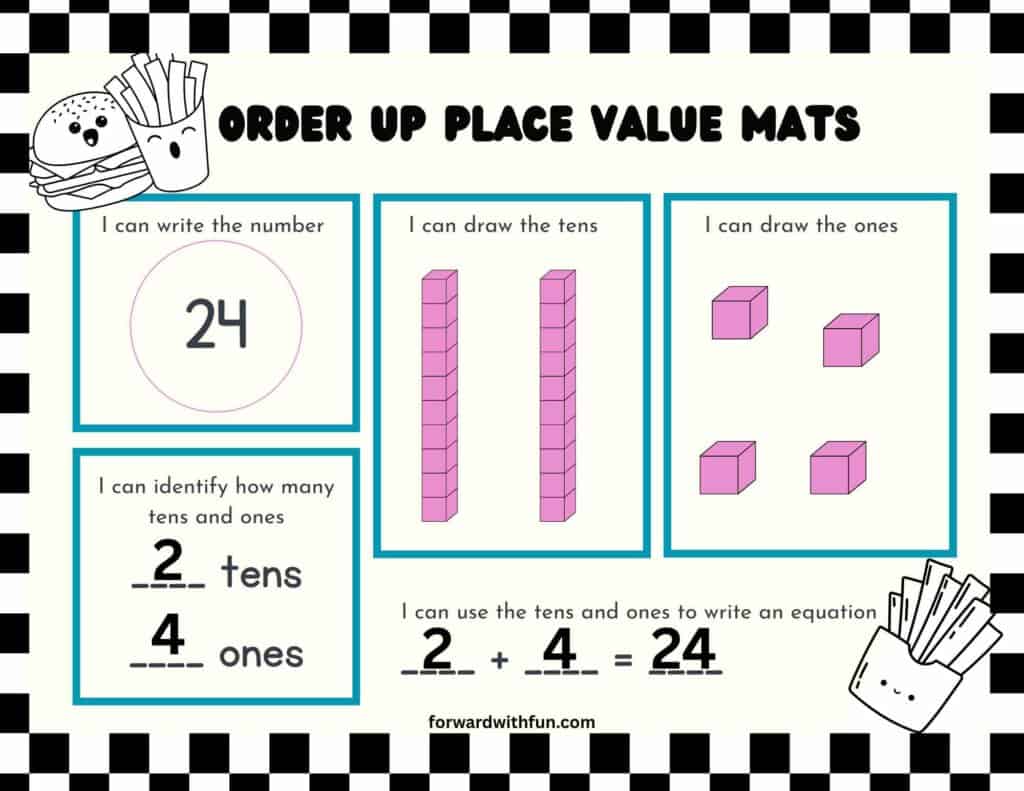
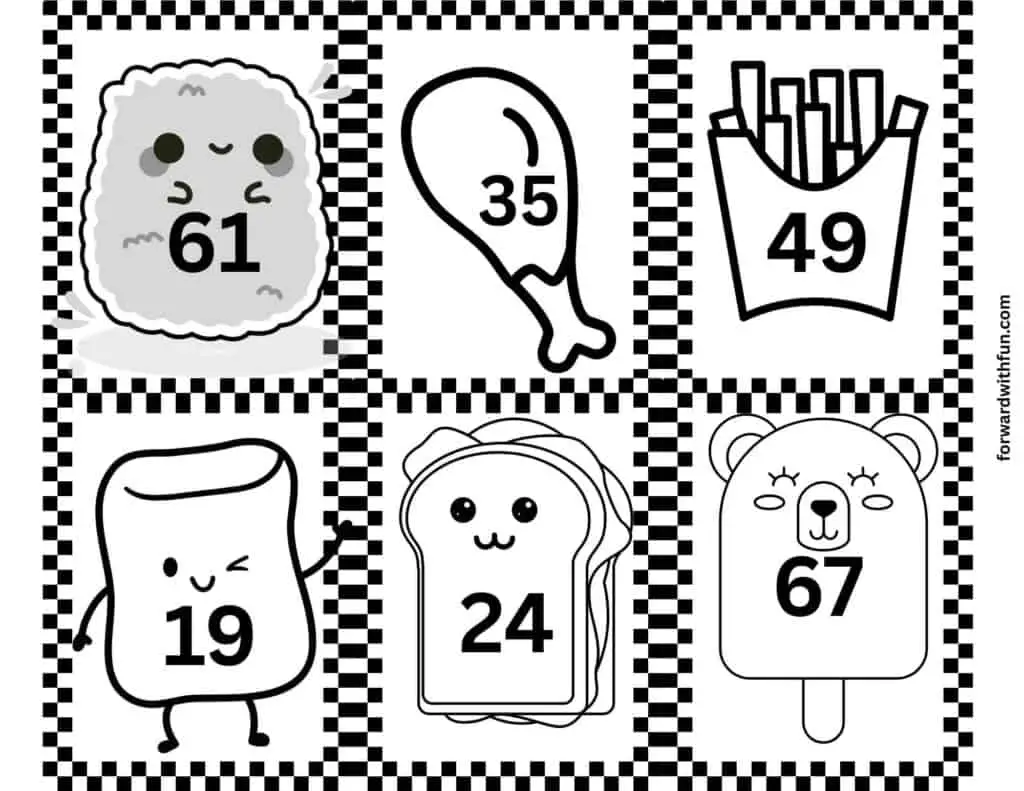
These little 9 squares are a fun puzzle came that teach children to work with place value as they add and subtract to find the missing numbers. When I do these with our students, I always recommend they imagine they're looking at 9 squares of a hundreds chart. You can even make them into more shapes to increase difficulty.
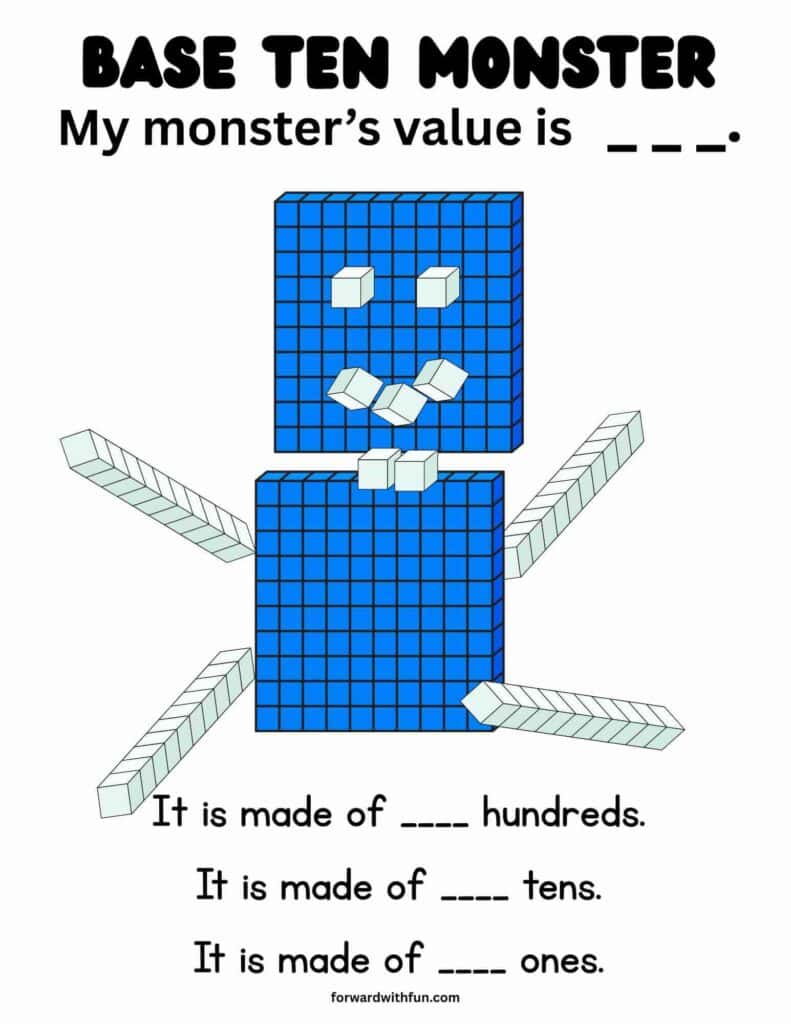
Bust out those base ten blocks: hundreds, tens, and ones and have children build their own little monster. It can be a human, robot, animal, or totally new creation. After they build, they'll total all the blocks to find their monster's value. Grab your free download, original printable by forwardwithfun.com.
Download this printable place value hundred's chart from Tim's Printables. Choose a mystery number and write it down in a secret location. Have kids ask yes/no questions that involve place value to eliminate options until they've found the number.
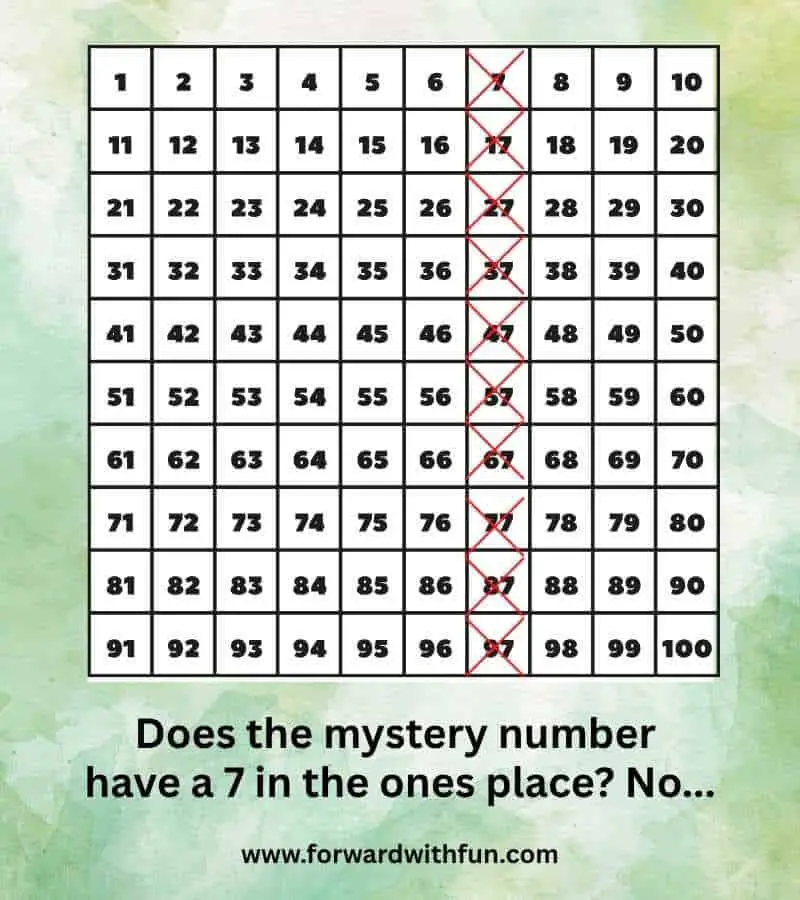
Just like typical war, use a stack of playing cards but divide it into 4 equal piles instead of 2. Use numbers Ace (as one) through 10 only. Players sit across from each other. Each turn they pick 2 cards and make the largest number they can out of those numbers. The player with the largest number wins the round. For kids in 2nd grade or above, they can advance this place value game by having to choose 3 cards at a time!
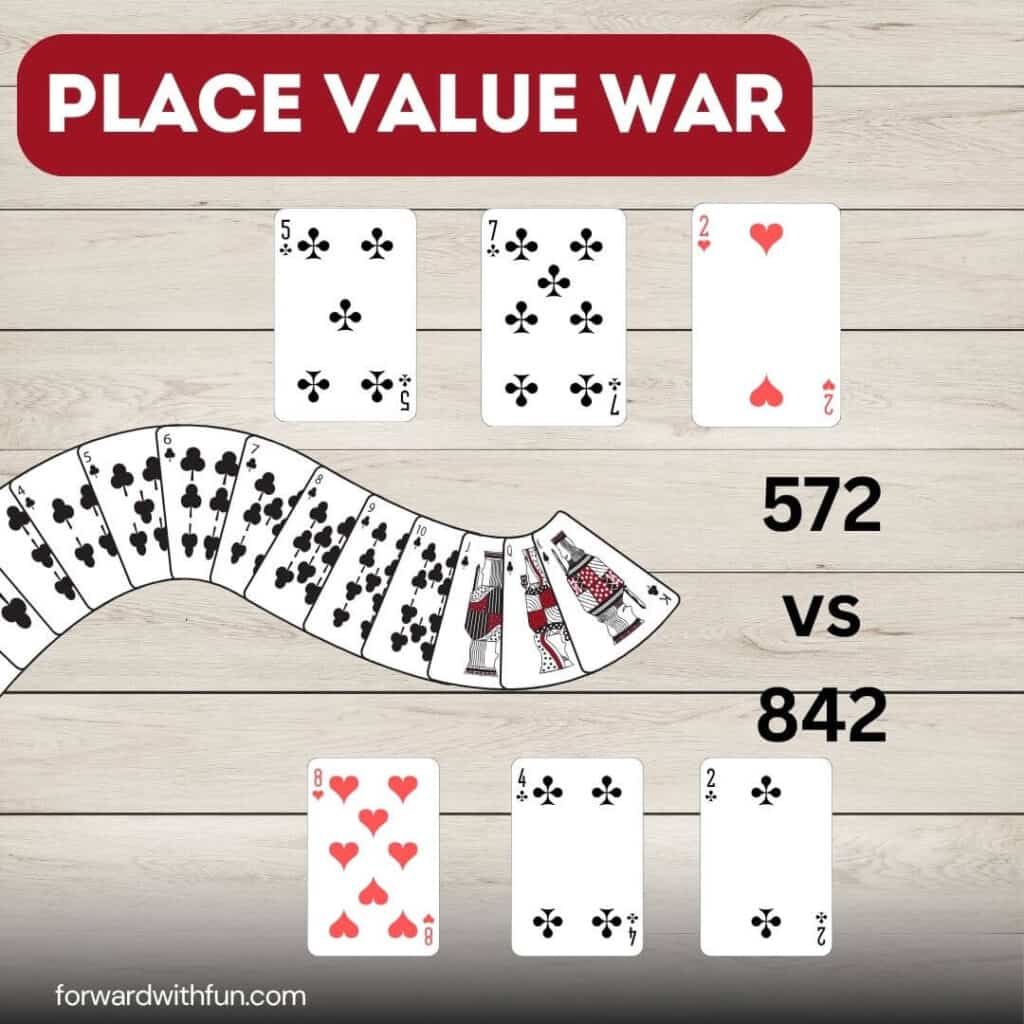
You'll need 2-3 dice per child for this game. For 1-2 grade, use 2 dice. Kids will roll their dice and use the numbers to create a two or three digit number. First they'll write the number down, then they'll need to build it on their table with base ten blocks. Once they've completed all the spots, they win! If you don't have dice, they can also use UNO cards! Kids can record their numbers on a white board or make a quick list without needing to print anything!
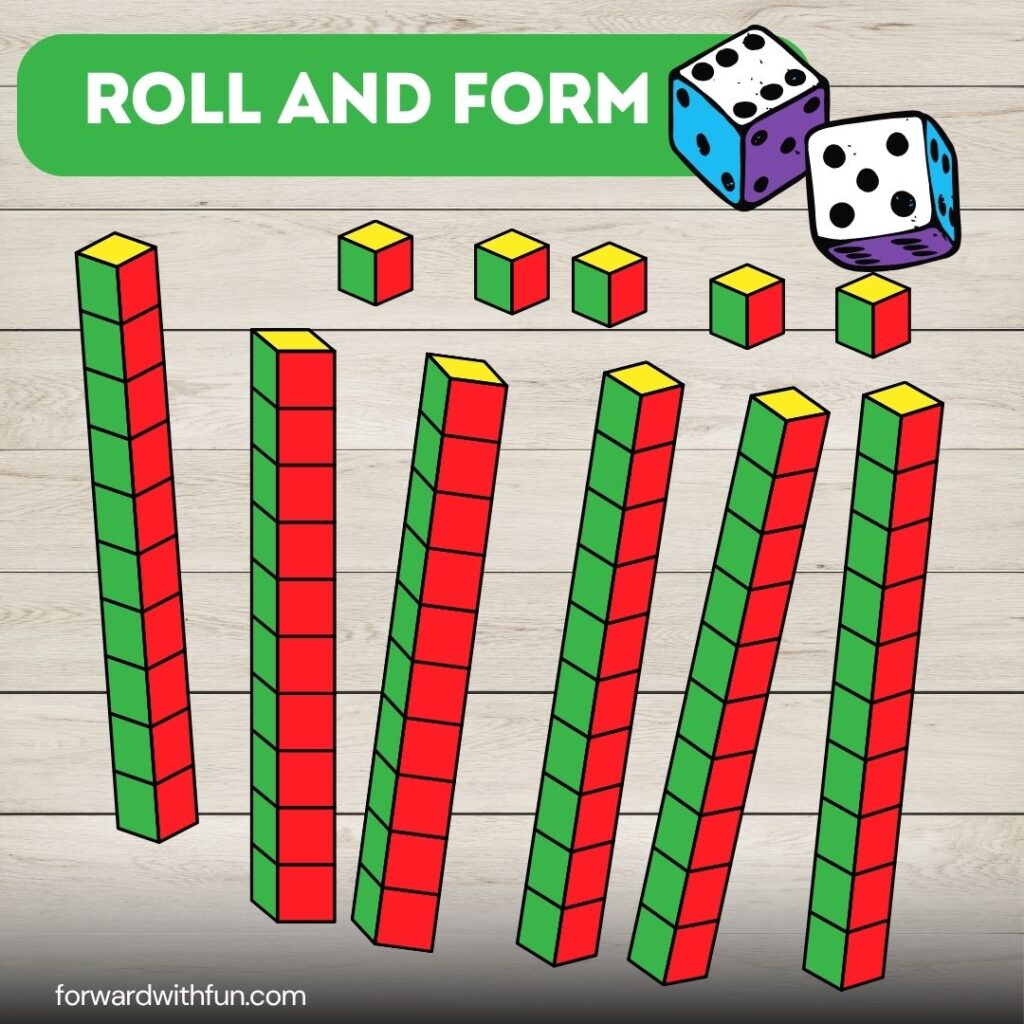
Write the number 10 in a square and then draw 10 smaller squares next to it. Call out a number and have kids jump on the 10 and one's to represent that number. They can jump multiple times on the big ten to represent multiple tens. For example for 54, kids would jump on the 10 spot 5 times and then jump on 4 of the smaller squares to represent the ones.
This place value game by the Pedalogical Pickle is perfect for first and early second grade. I've seen a ton of place value bingos out there, but these cards show either a visual picture of tens and ones or say __ tens and __ ones. Perfect!
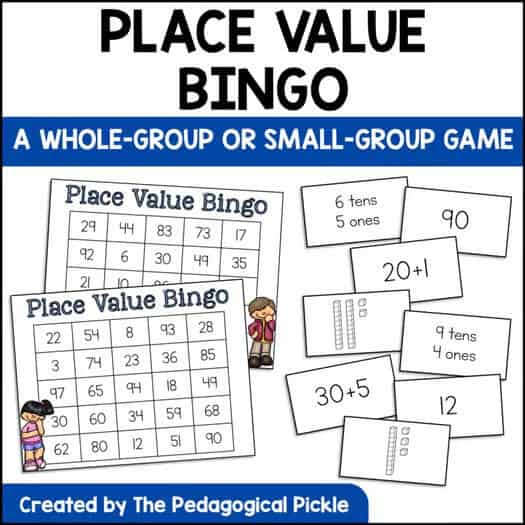
Chutes and Ladders is an excellent game for kindergarten through second grade because kids work with numbers 1-100, and they need to keep track of where they are on the board which is NOT linear.
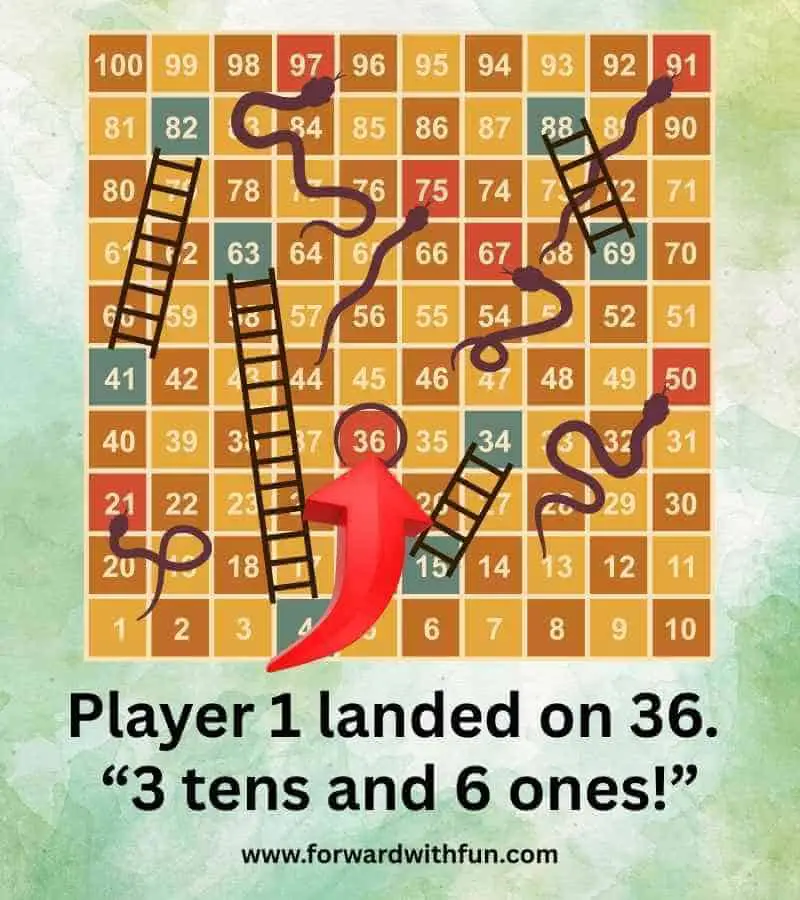
In the place value game version of Chutes and Ladders, you spin the spinner, move up to your spot and then say out loud how many tens and ones make up that number. If the player cannot say the correct number of tens and ones, they need to go back to their original spot (unless they landed on a chute!)
Set up task cards around the room with different place value challenges. This FREE place value printable game by First Grade Bangs is so easy to prep. Print out the place value cards, tape them around the room, and have the kids each find and stand in front of one. They have a short time to write the number represented by the picture card and then you call out "Scoot!" When they hear that word, kids must move to another card spot where there is no other student standing while they write their next number.
Again you'll need this printable place value hundreds chart from Tim's Printables and one die (or two to make it go faster). This game can be played with tens and one blocks or with unifix cubes which will fit better.
I love playing "I have, Who has" games with my class, because the kids are all so locked in and have their focused faces on. I found this excellent base ten version by Primary Delight on TPT that is easy to make more difficult as the kids get better place value games. Give each kids 1 or more cards, and the starter asks "I have (the number on the top of the card)" then reads, "Who has (the number on the bottom of the card)?" To make it harder, give each kid more cards or time the class and beat your time!
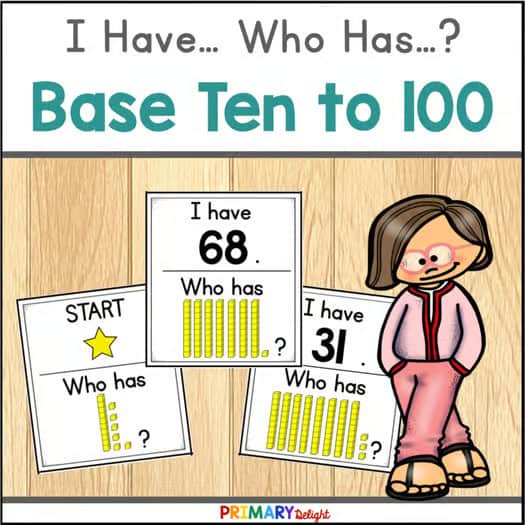
Jaw dropping genius from in2teaching on TPT, with a printable battleship game that teaches place value. Seriously, kids don't even know they're learning. They're so caught up in the excitement of the game and only become place value masters as a byproduct of having fun.
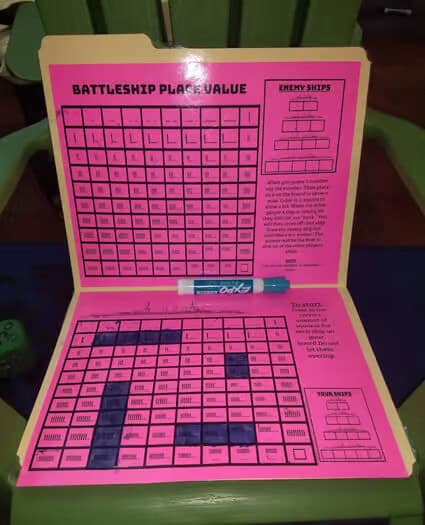
All you need are flash cards for this STUDENT made game.
Again, all you need are flashcards for this classroom game, best played with groups of 5 or more. Tape a flashcard with a number from 10-99 on each students back. You can even use the cute kawaii food flashcards from game number two. Kids have to go around the room, asking one question of each other at a time. All questions must have to do with tens and ones until they accurately guess the number on their back.
Some questions that can be asked...
Reveal a number written on a white board (either in the tens or hundreds for older kids) and kids must build it faster than the other child using manipulatives. When playing with a whole class of kids, instead of facing off, there can be a timer (between 10-20 seconds) where the children have to build the number. Base ten blocks are excellent for this game, but you can also use straws in bundles of tens and single straws.
To place place value hangman game, you'll start off like you're playing regular hangman. Choose a number and write a _ for each missing digit. I recommend starting with no more than 3 spaces.
Kids will ask questions like "Is the ones digit more than 4?" If the answer to the question is yes, no body part is drawn on the "hangman." If the answer is no, a body part is drawn. Include a "clue box" to keep track of what is asked. For example, for the above question, the clue box would say "ones place >4." Continue asking questions till the number is guessed or the hangman is complete!
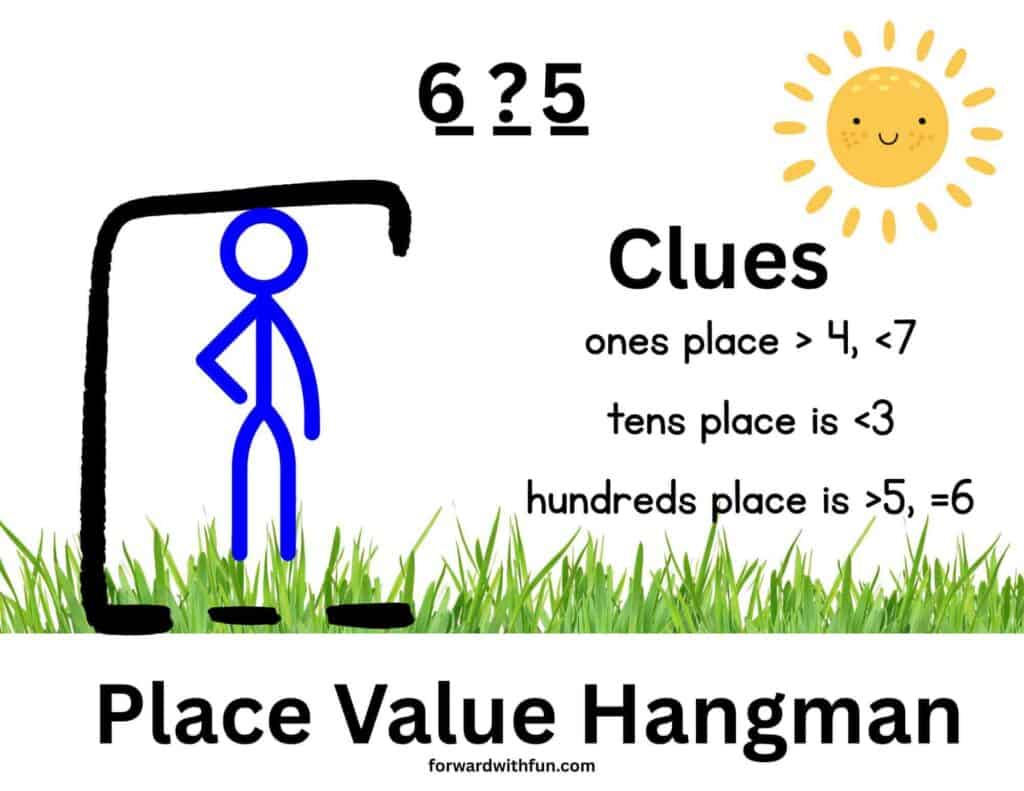
Kids build their names out of tens and ones blocks, then total them up to find their name's total worth-at least the worth of all those blocks! Kids will use their knowledge of tens and ones to calculate a large number, rather than adding up by ones. What's interesting is how kids will keep track of everything on their own. I give them post-its and nothing else. Will they organize it by letter and add up, or by tens and ones? It'll be fun to find out.
In this post we explored ones, tens, and finally the number 100 for the 100th day of our COVID quarantine. Before this, 100 seemed like such a big number, but after, my kiddo understood that 100 is just ten groups of 10. This epiphany is the basis of understanding place value.
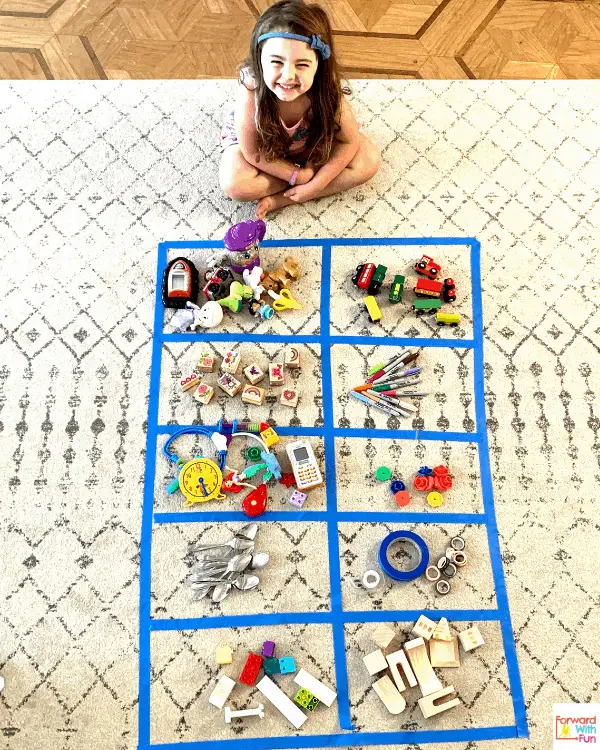
Printable place value games are an excellent way to make math meaningful and enjoyable for young learners. Whether you're aligning with Common Core standards or just want to reinforce math skills at home or in class, these activities offer hands-on practice that kids love.
Keywords: printable place value games, place value activities, place value printable, common core math games, elementary math games, free place value printables
Behind every great school is a strong, dedicated leader — the principal. If you're looking for ways to show gratitude, Principal Appreciation Day is the perfect time to do it.
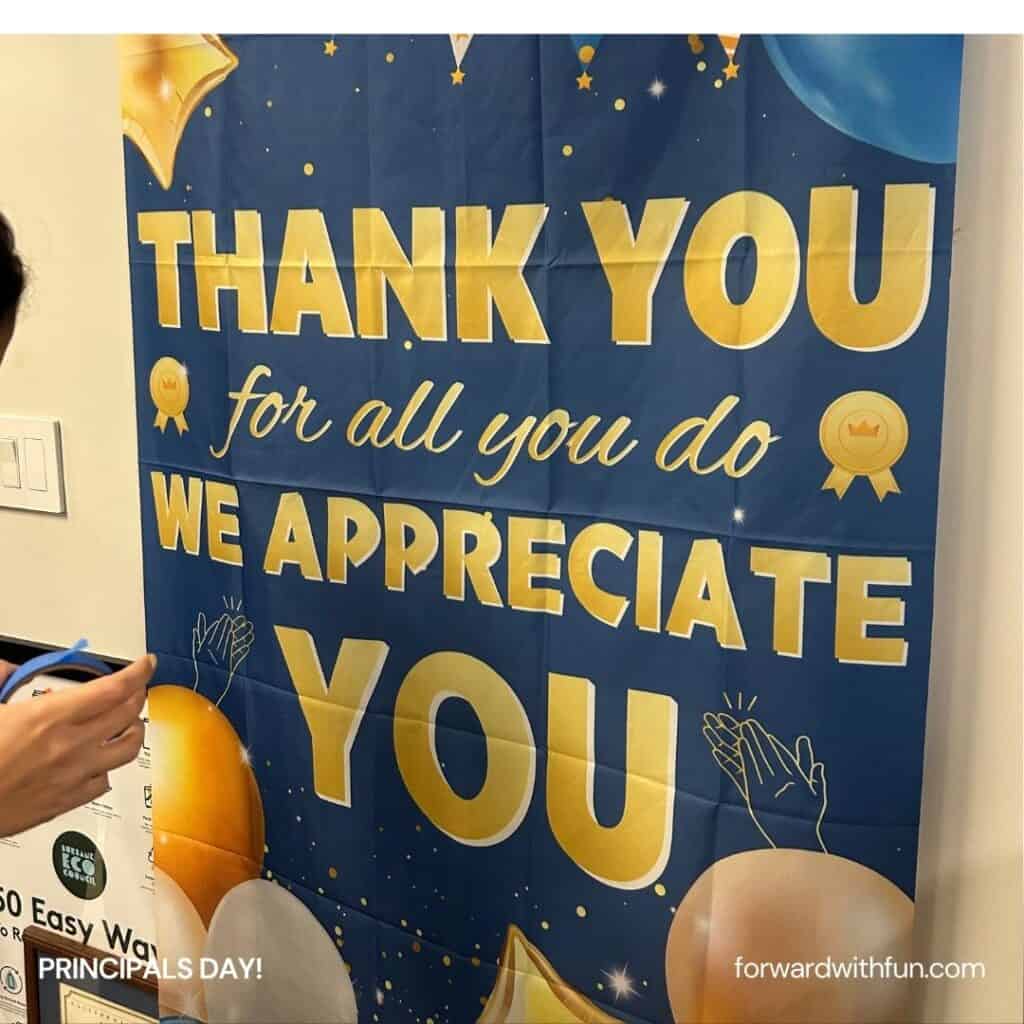
In this post, we’ll cover:
*As an amazon affiliate I may receive a teensy commission if you buy something from one of the links in this post, at no additional cost to you. Thank you.
Principal Appreciation Day is celebrated annually on May 1st. It falls during National Principal Appreciation Week, which typically occurs during the first week of May. It’s a time for students, teachers, staff, and families to honor the crucial leadership principals provide every day.
If your school has an Assistant Principal, this would also be a great time to celebrate their role too!
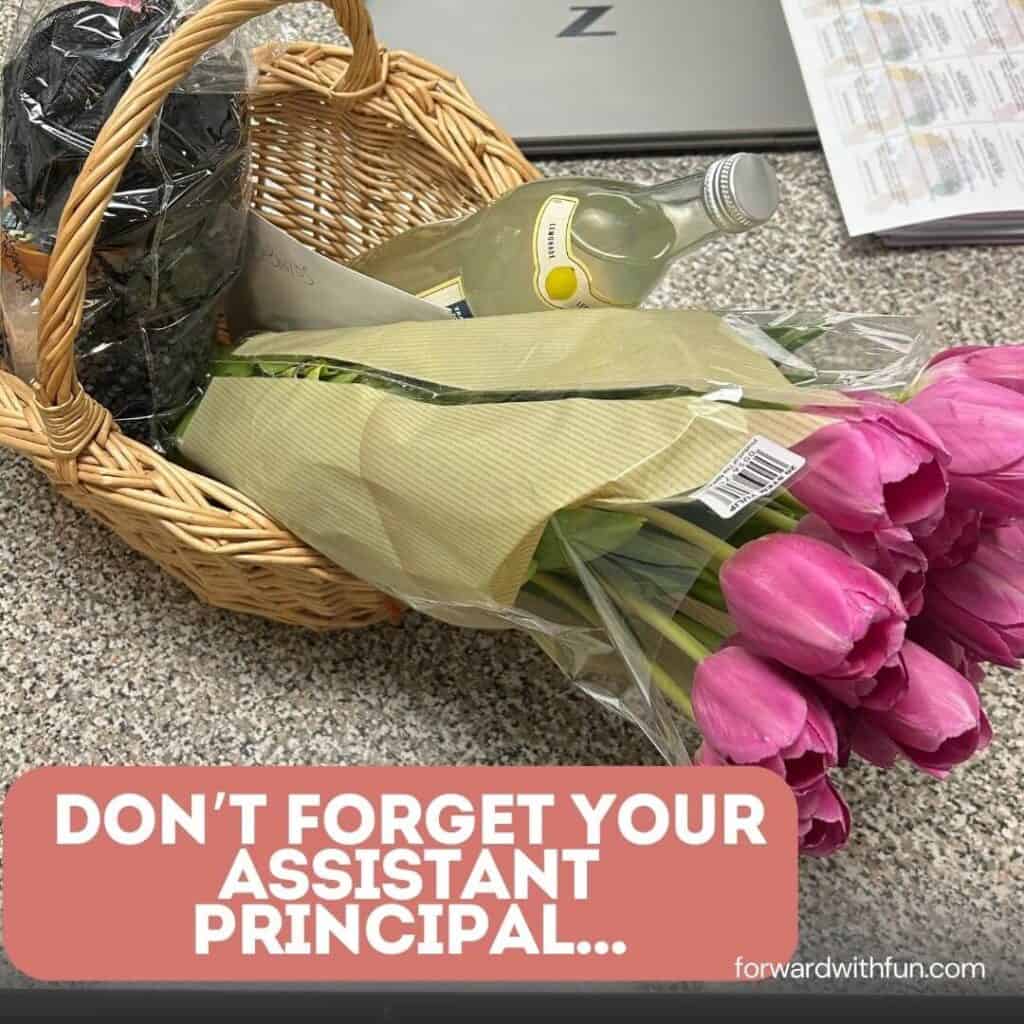
Many people think of principals as just walking around the school or handling discipline. But their job is far more complex. Here are some lesser-known responsibilities principals and assistant principals take on:
From safety drills to unexpected emergencies, principals are the first line of response. They often deal with high-stakes decisions quickly and discreetly.
Principals are often unofficial counselors for both staff and students. They manage emotional crises, facilitate conflict resolution, and create policies for mental wellness. I've cried in front of every single principal I've ever had, and I've always been grateful for the safe space they have provided.
Principals coach and evaluate teachers and also bring other professionals into their schools to help teachers learn new research based methods of teaching in order to improve our practice!
Many principals oversee their school’s budget — allocating funds for materials, technology, events, and staffing — all while keeping the school running smoothly. This is probably the hardest unseen job!
Principals attend school board meetings, represent the school at community events, and build relationships with parents, local organizations, and businesses.
In short, principals are the backbone of a school’s success. If you've been blessed with a great one, make sure they know how your community appreciations having them as principal!
Looking for the perfect way to say “thank you”? Whether you're a student, staff member, or parent, these thoughtful gift ideas can make a big impact. Did you now that showing gratitude is a great way to build social emotional skills?
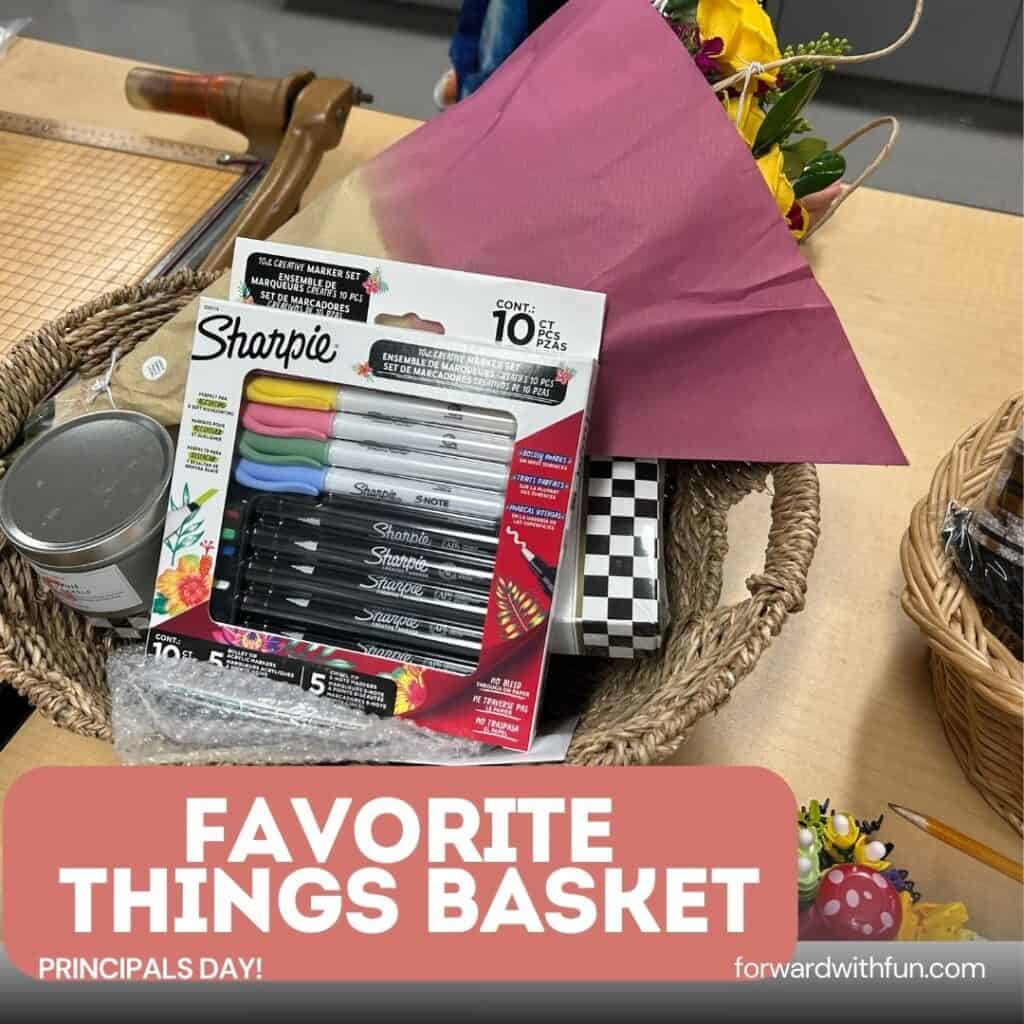
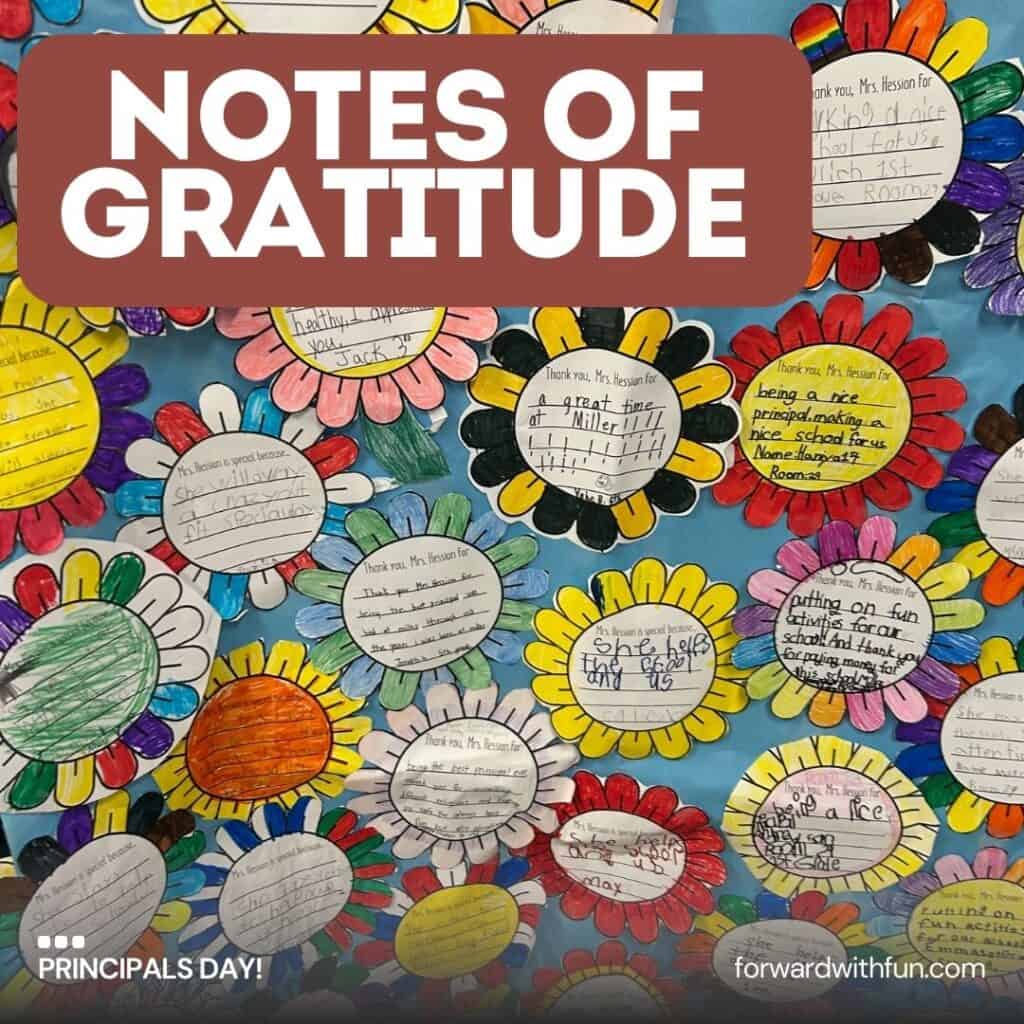
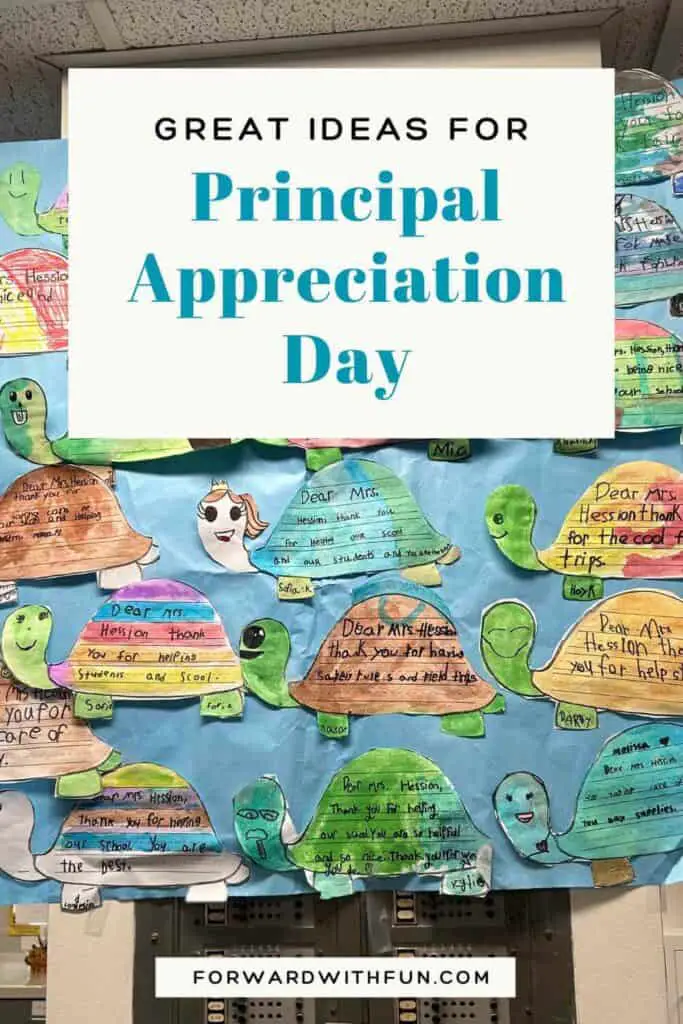
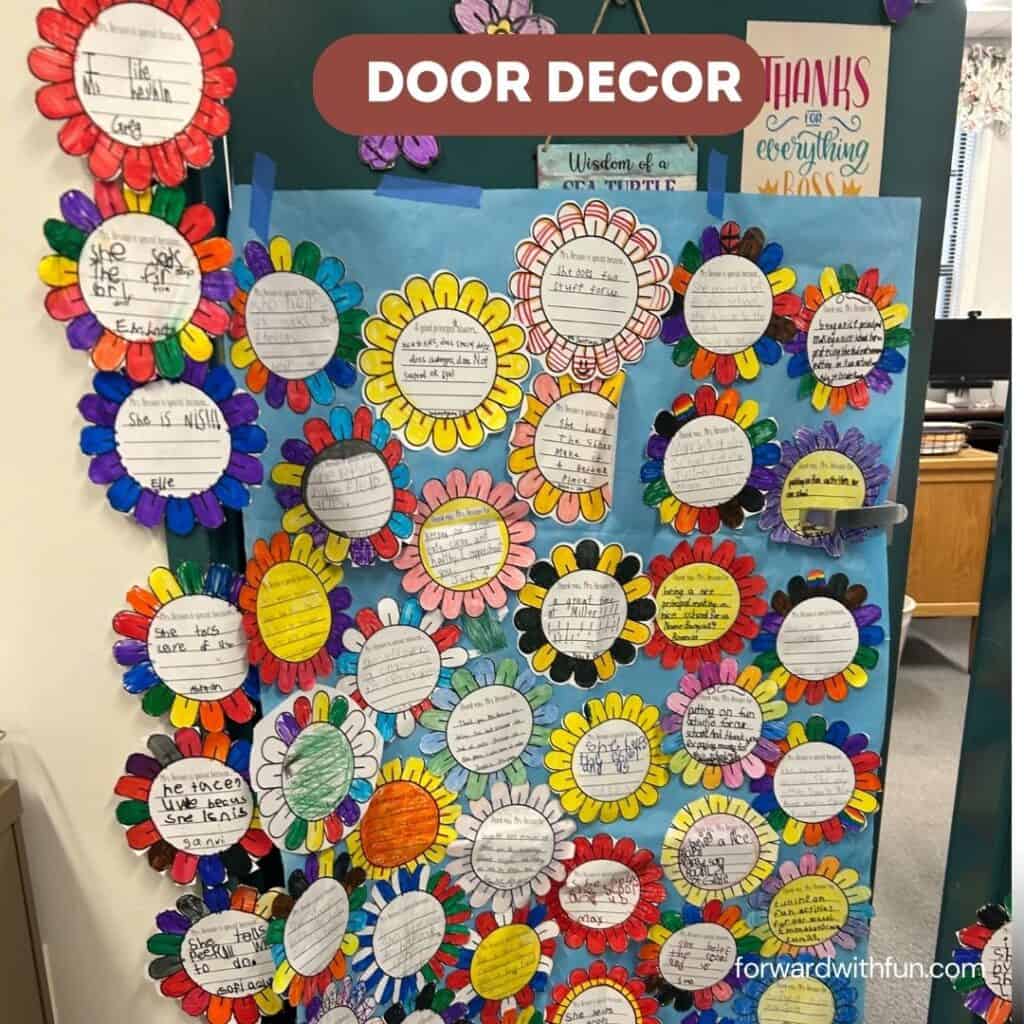
This year we had each grade fill out a different writing prompt. They then colored and cut their flowers and we placed them in a "garden" to thank our principal for helping us grow. Want to use the same flowers? Download them below.
Principal Appreciation Day on May 1st is more than just a date on the calendar — it’s a reminder to acknowledge the incredible work school leaders do every single day. From managing crises to mentoring staff, their impact reaches far beyond the classroom.
Whether it’s a small note or a larger community effort, taking the time to show your appreciation goes a long way in recognizing the heart and hustle behind the role of a principal.
Phonics Friends, here you'll find a handy AR Word list and worksheets to teach all about the AR word family.
In this post, we’ll explain the Bossy R rule for AR words, provide a detailed list of "ar words," and share free AR word family worksheets for students to practice this new phonics rule.
When "A" and "R" are found together, they say R's name, like a pirate, "ARRRR!" The rule about "R" saying its name when combined with "A" is often taught as "Bossy R."
This phonics rule applies except on some occasions.
Here are the times when -AR doesn't say R's name:
Here is a fabulous video to help solidify the rule with kids.
The "ar" sound is a common pattern in English, found in many words children encounter frequently. Kids will be expected to read "AR words" during first grade. We need to practice AR words, because when kids are reading phonetically they will likely pronounce the /a/ sound and the /r/ sound separately, misreading words until they understand this rule.
Here is a list of common "ar words" that are perfect for young readers. These words vary in difficulty, making them suitable for different stages of learning. The AR word list pdf has many more words, so make sure to download it!
Basic AR Words:
Intermediate AR Words:
These words contain consonant blends, another important part of first grade phonics.
Advanced AR Words:
These words are multisyllabic, which makes them a bit harder to read. I would have these as 2nd grade vocabulary words.
Here are some practical ways to incorporate the "ar words list" into your teaching routine:
2. Writing AR Words Practice
2. Roll and Read Game by UFLI toolbox. I use these weekly!
3. Stamp and Cover AR Words List
Mastering "AR words" is an essential part of literacy development. If you're interested in more word family resources (also free), check out these posts:
Did you procrastinate and need some last minute leprechaun tricks to wow the kids? Me too, so you're in the right place for fun pranks that the kids will remember for years to come. Most of these silly leprechaun tricks can be done with almost no prep. Some others do require items that are really easy to get at your local store. Green food coloring will go a LONG way!
To make it easy, I've separated the leprechaun trick ideas into 4 categories, so you can find what you need right away by clicking the subsection that matches what you want.
*As an Amazon Associate, I may get a Leprechaun-sized (read: teensy) commission for any purchases you make with my links, at no additional cost to you. Thank you.
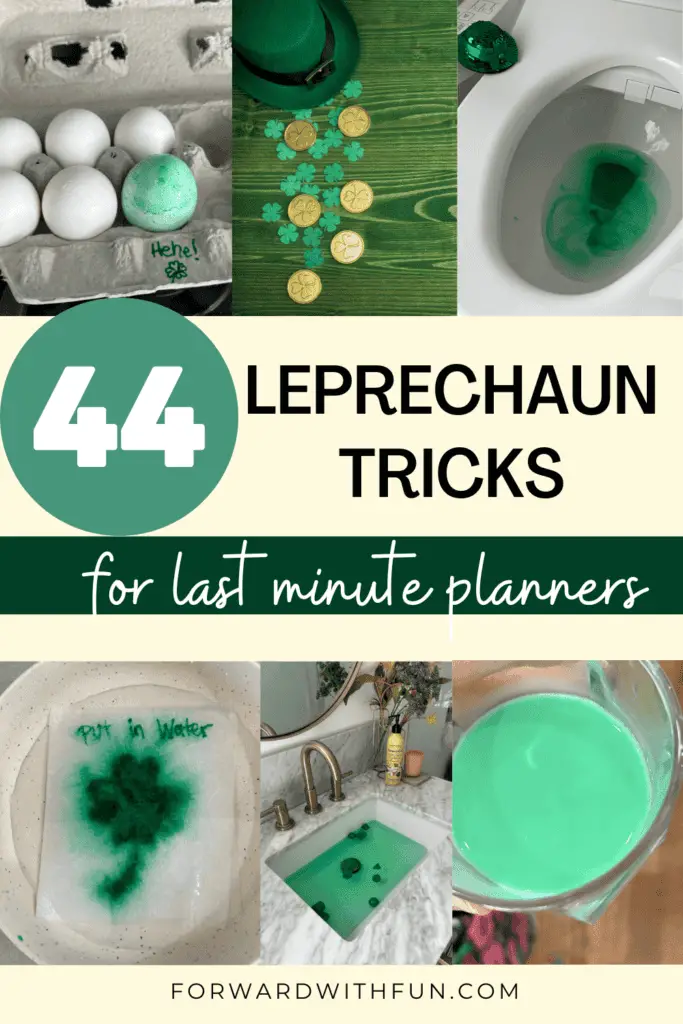
Trip the Trap! Each year before St. Patrick's day, I always have my kids build their own leprechaun trap where they entice them to enter their construction with the promise of gold. I have a free printable Leprechaun trap design sheet you can use to do this with kids or students! In the morning, the kids love to check the trap to see if they finally caught a leprechaun. Of course, I've already tripped the traps.
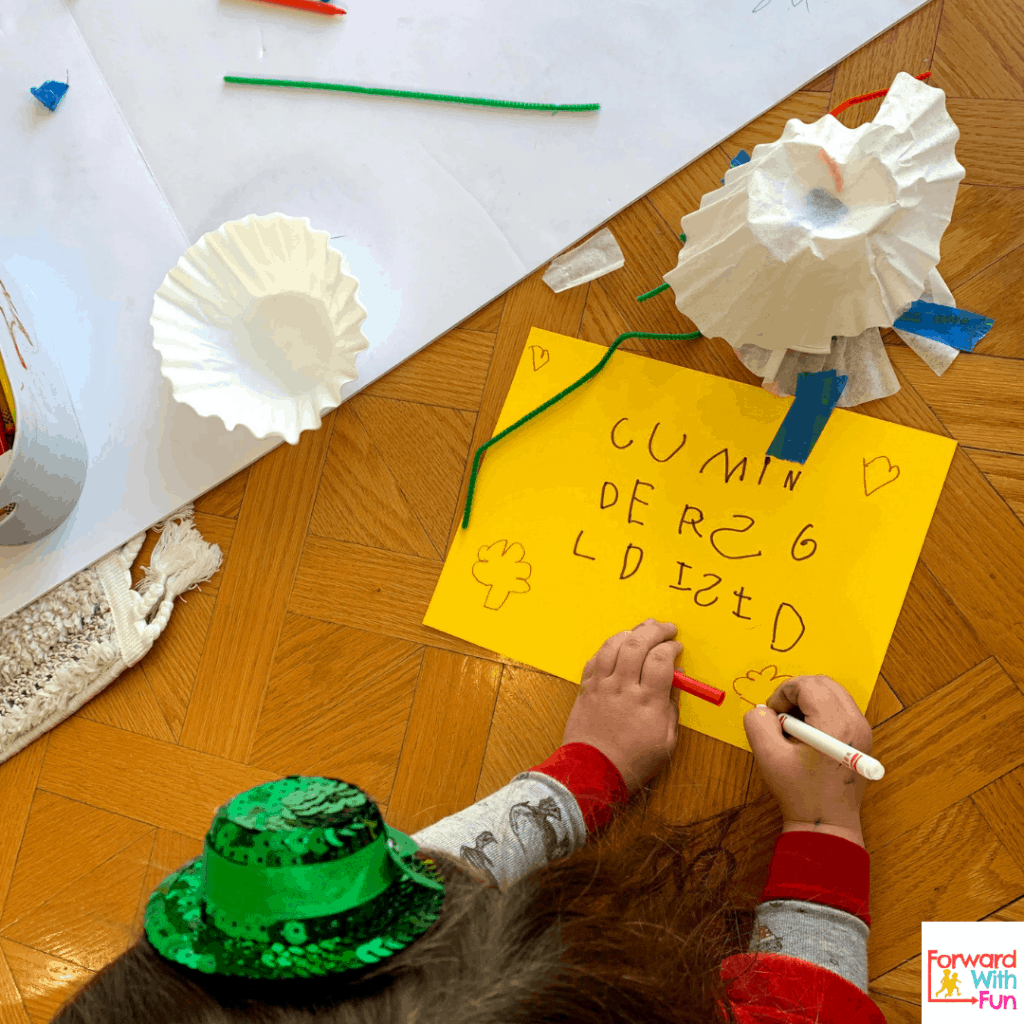
Shamrock Surprise: Hide shamrock stickers in unexpected places like their books or under their pillows.
Leprechaun Scavenger Hunt: This FREE Printable by Brooklyn Berry Designs is so awesome! Get ready for lots of excitement and laughs, thanks to those pesky leprechauns.
Magic Mirror Messages: Write leprechaun-themed messages on the bathroom mirror with soap or whiteboard markers. "Don't forget to wear green today!"
Melted Crayon Rainbow: Remove the peels from some crayons and glue them down on a surface, then blow dry them to make a wax rainbow courtesy of the leprechauns!
Leprechaun Laughs: Play a recording of leprechaun laughs or jingles and see their puzzled faces as they try to locate the source.
Paper Towel Leprechaun Magic: Cut a small section of paper towel and fold in half like a card. On the inside, where you would normally write a message in a card, draw a picture: leprechaun, clover, rainbow. Fold it over so that you can't see the message and then write on top, "Put in water." Once you place it in there, the image below is revealed! Magic!
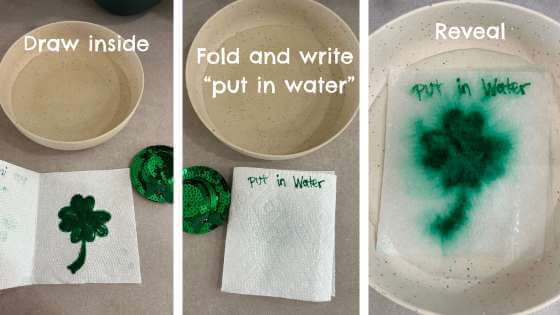
Invisible Ink: Write a secret message with lemon juice on paper. Let them discover it when they gently heat it up (with supervision, of course!). For how to do it check out Team Cartwright's awesome post.
Mustache Mischief: Leprechauns are known for their red hair. Grab these silly mustaches and use the ginger ones to leave mischievous mustaches on random things like their favorite teddy bear!
Leaping Leprechaun Tracks: Use green paint or chalk to create leaping leprechaun tracks on the floor. I usually make a fist and paint the side of my hand, because it ends up looking like a tiny foot. All I need to do is add 5 dots for toes!
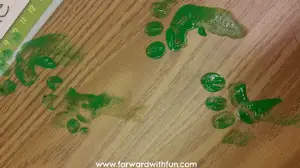
Green Light, Green Light: Swap out your classic bulbs for some green ones. That will have the kids roaring with laughter when they turn on the light and the room becomes green!
Green Ice Cubes: Freeze some green water then go get yourself some ice cubes and exclaim, "Who did this to my ice!"
Green Silly String: Have the kids discover that the leprechauns schemed while they were away. Use Green Silly String to mess up a room after they've just left.
Leprechaun Chemistry Trick: Place some green food coloring in a container and cover it completely with baking soda. Leave a container of vinegar next to it with a note that says, "Pour me in. From, A Leprechaun." That will change the baking soda into a green bubbly reaction! For full instructions see my post on Fizzy Colors Science.
Gather the Green: Take a bunch of green items from around the house or classroom and put them in a pile with a little sign that says "Conquered in the name of St. Patrick!"
Trash the room: This is quite possibly what makes St. Patrick's Day the most fun day of the whole school year. During recess, my fellow teachers and I TRASH the room. For real! (See the proof below!) We knock over every single chair, throw toys on the ground, dump out the bins. The kids are SHOCKED when they return from recess to witness the aftermath of Leprechaun shenanigans. The sweetest part is how they all want to clean it up right away, taking such pride in caring for their classroom!
Rainbow leads here: Use chalk to draw a large rainbow leading up to the classroom door if your classroom door is outside. If inside, use huge strips of paper.
Magic Leprechaun Notes: Leave a note from a leprechaun with a funny message or a silly riddle in their lunchbox or backpack.
Map to the end of the rainbow: Create a map of the school with a hidden treat. Have the kids read the map to find a hidden treasure of your choice. Even something as small as a sticker is always a huge hit.
Marker Mayhem: Remove all the green markers, crayons, and colored pencils from their stashes. When they go to color stuff, they'll go wild at the darn little Leprechauns who stole them on St. Patrick's Day.
Leprechaun’s Messy Desk: Rearrange a few items on the students' desks and replace their usual supplies with green or shamrock-themed items (like pencils, erasers, or notebooks). When the kids come in, they'll be puzzled by the leprechaun's playful rearrangement and enjoy discovering their new green gear!
Gold Coin Math Estimation: Leave a clear jar full of gold coins from the leprechauns. Have the kids estimate how many gold coins are inside. The winner gets to keep or distribute the coins to the class.
Roll up your sleeves: Cover your arms in St. Patrick's Day themed tattoos, then cover them up with a long shirt. Roll up your sleeves and act so surprised to find out that leprechauns must have covered your arms with their tattoos while you were sleeping!
String us together: With a super long piece of golden or green yarn, connect all the kids' chairs so that every chair is connected to another in the classroom. This is the perfect quick alternative to trashing the classroom. It is something you can easily undo by cutting the string while still bringing the festivity into the classroom.
Tiny Green Toilets: Place a few green food coloring drops in the toilet bowl. Who knew leprechauns were into eco-friendly pranks?
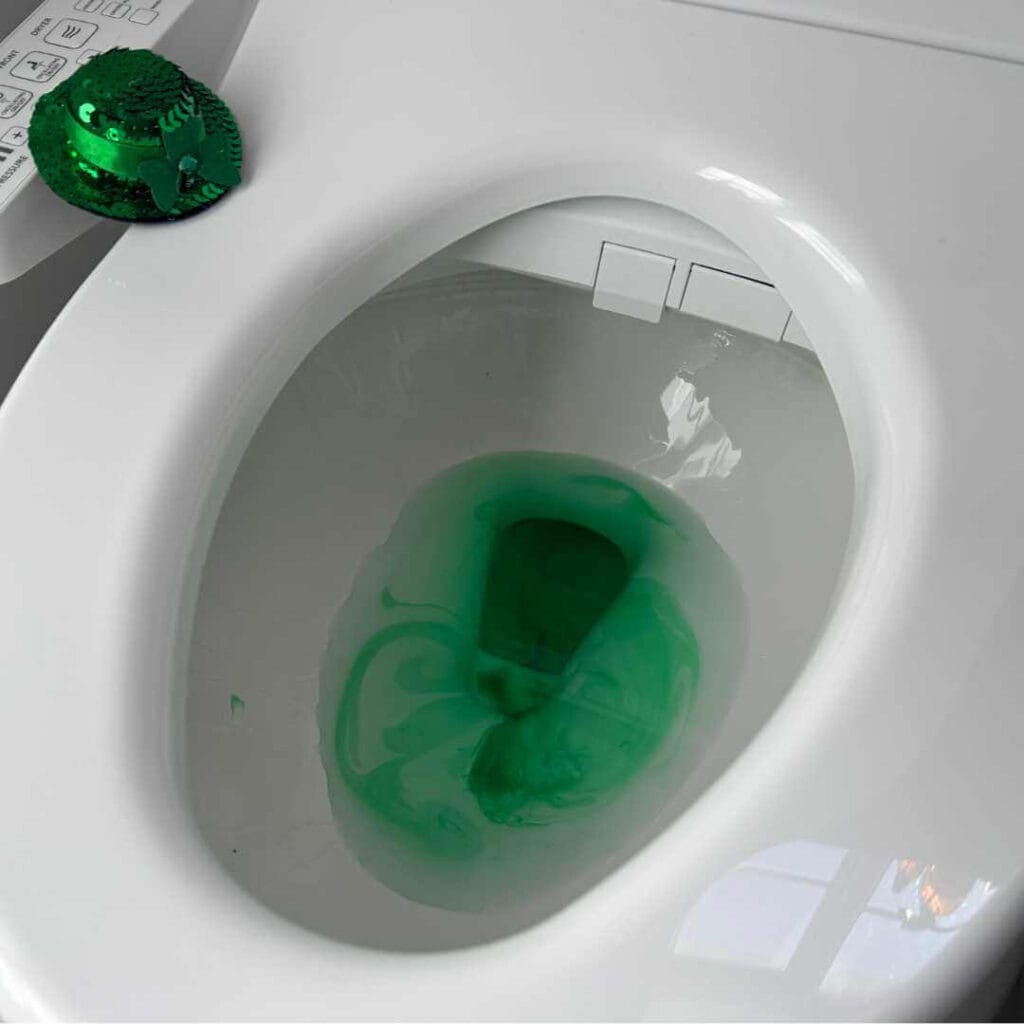
Shamrock Confetti: Fill their shoes with shamrock-shaped confetti. Nothing like a little surprise to start the day!
St. Patrick’s Day Jokes: Write leprechaun-themed jokes and hide them in their pockets or lunchboxes.
Leprechaun Hair Dye: Temporarily dye their hair green with a safe, washable green hairspray. Watch their eyes widen as they see their new “lucky” look!
Sensory Sink: Last year, I ran a marathon on St. Patrick's Day, so I woke up at 2:30am needing some last minute leprechaun tricks at home. This an the toilet one is my go to, because it's so easy; just add some green food coloring to water in the sink and put some floating green objects in. Viola!
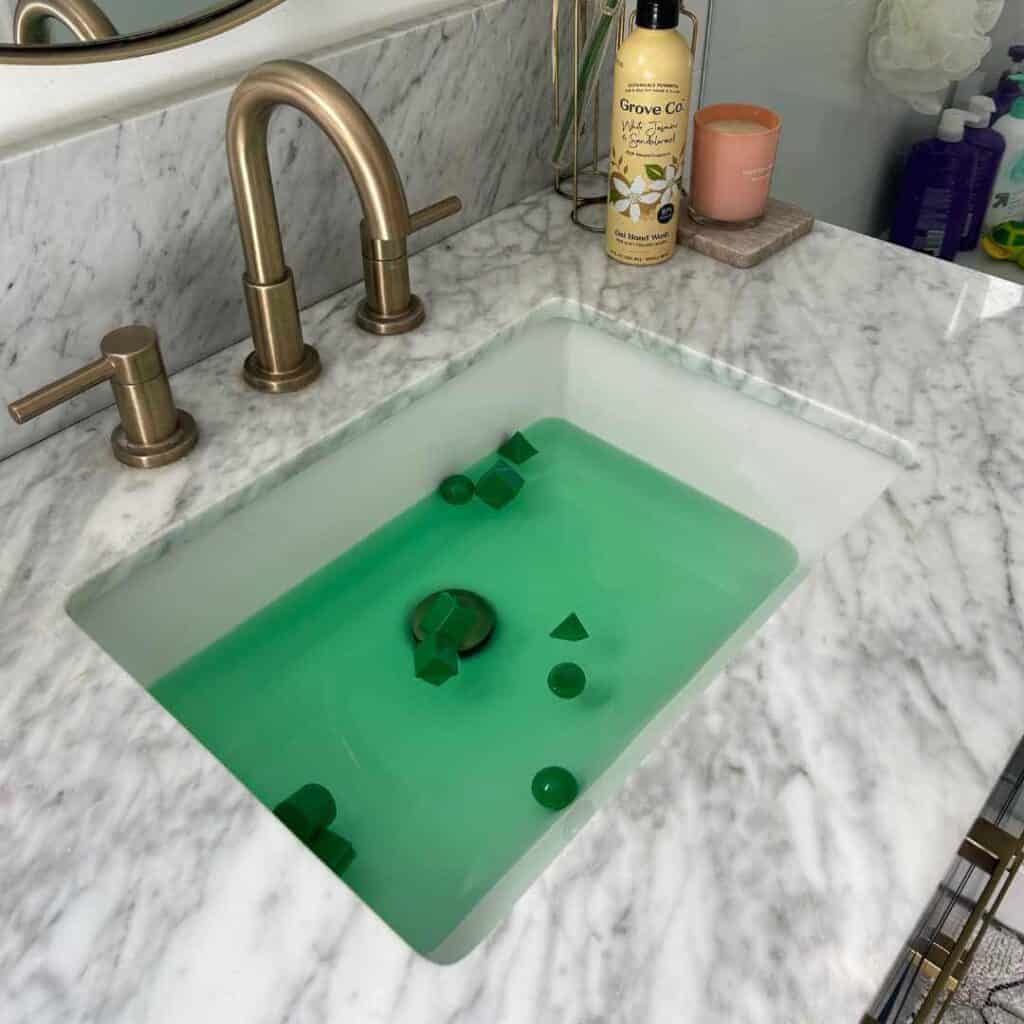
St. Patrick's Day Green Bath: Fill the bathtub with green bath toys or floating shamrocks. A few drops of green food coloring in the bath always makes for some laughs! Just don't use too much or it can stain.
Shamrock Toilet Paper: Swap out the regular toilet paper with a hilarious Shamrock patterned roll, made just for silly leprechaun tricks!
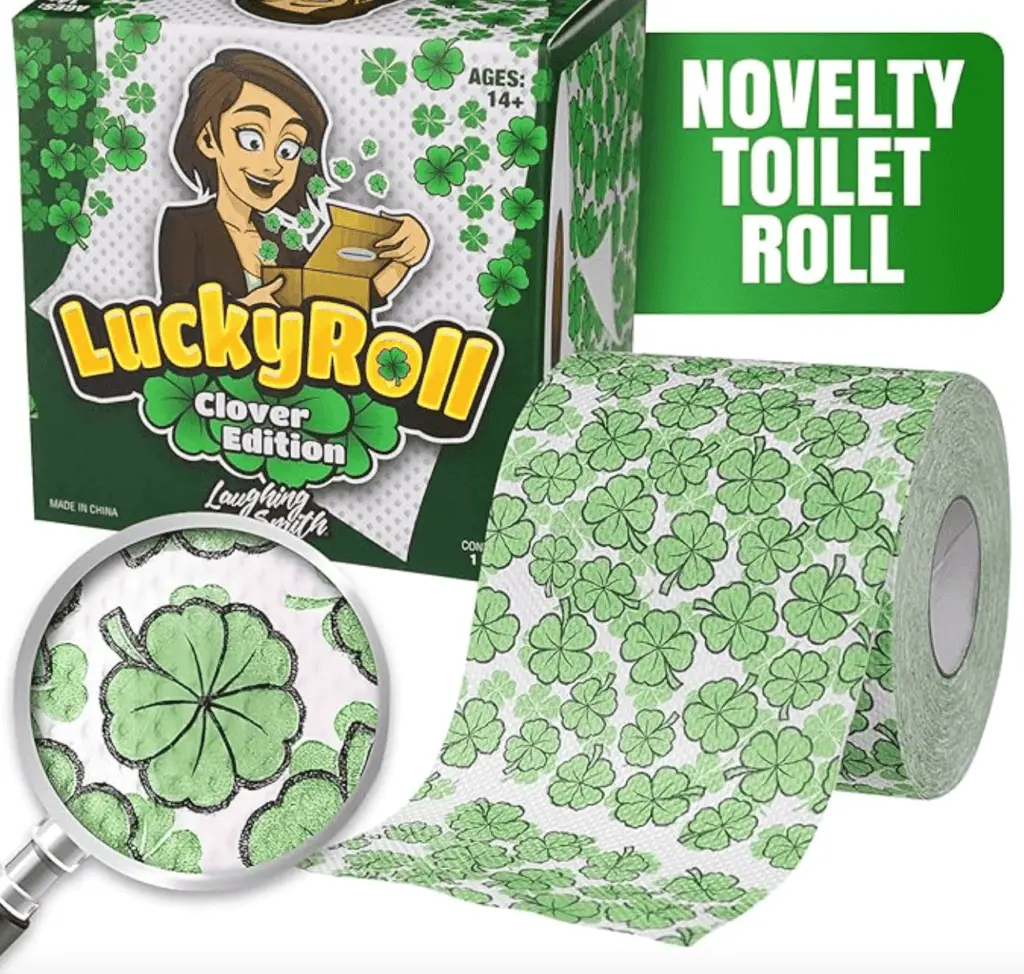
Bedroom Balloons: I've done this for my kids' birthdays as well as St. Patrick's Day. Blow up some green, gold, and white balloons and then sneak the balloons into your child's room when they are asleep. They are super wowed when they wake up to a room full of balloons!
Paper Streamer Blockade: Use green or rainbow crepe paper streamers to "block" your kids' closed door. When they open their door, they're sure to explode with laughter before satisfyingly ripping through the crepe paper.
Green Milk Surprise: Add a few drops of green food coloring to their milk and watch their eyes widen as they take their first sip.
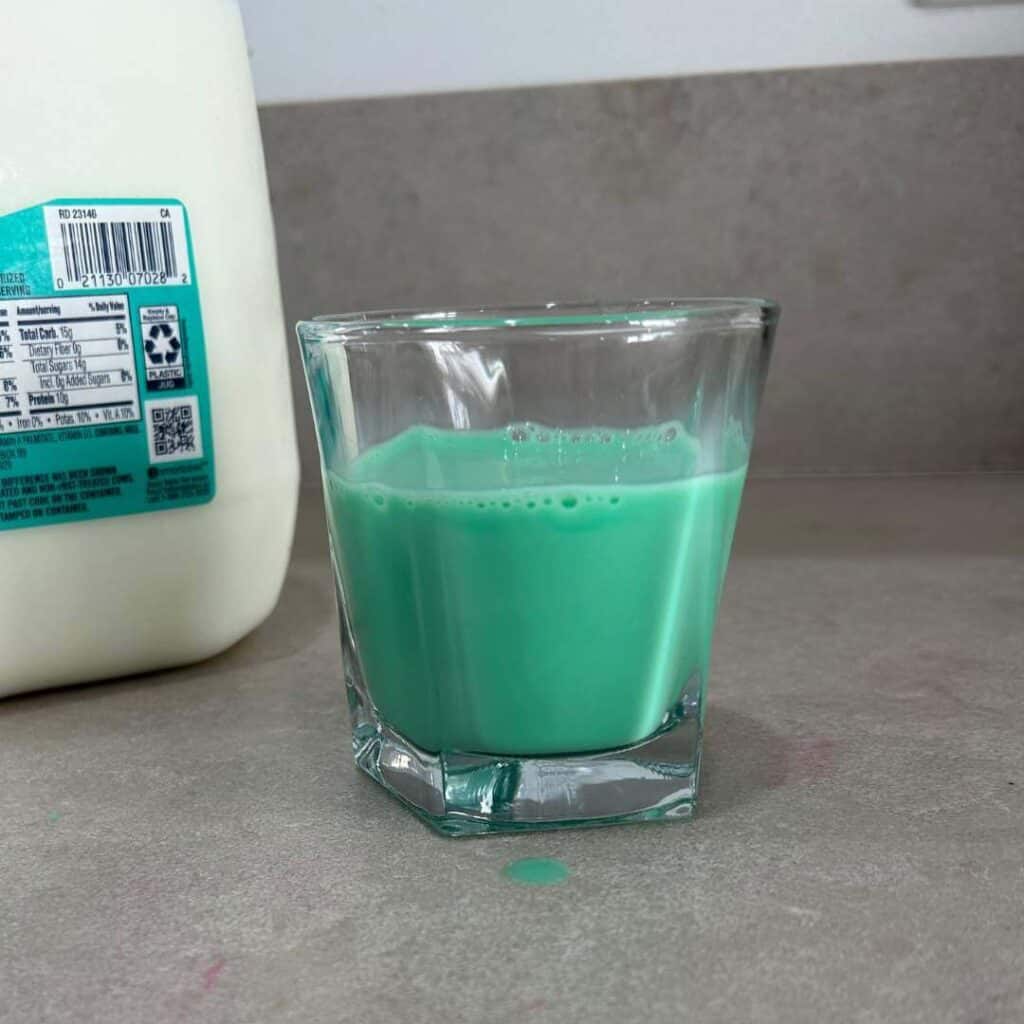
Green Food Day: Serve all their meals and snacks with a green twist. Green eggs, green pancakes, green spaghetti—anything goes!
Grow a Jelly Bean: On the day before St. Patrick's day, have children plant a jelly bean. At night, replace it with a jelly belly lollipop. This is a kindergarten tradition at our school.
Gold Coin Hunt: Scatter chocolate gold coins around the house or classroom for a little treasure hunt.
Lucky Charms Swap: Swap their usual cereal with Lucky Charms and watch them wonder why their breakfast has magically changed. Just place the plastic bag of Lucky Charms inside of another cereal's box and blame it on the leprechauns!
Green Tongue: Serve green popsicles or candies that will leave a green tint on their tongues.
One Green Egg: Wipe green food coloring around one egg in the egg carton and write a silly message from the leprechaun. Who will volunteer to eat that green egg?
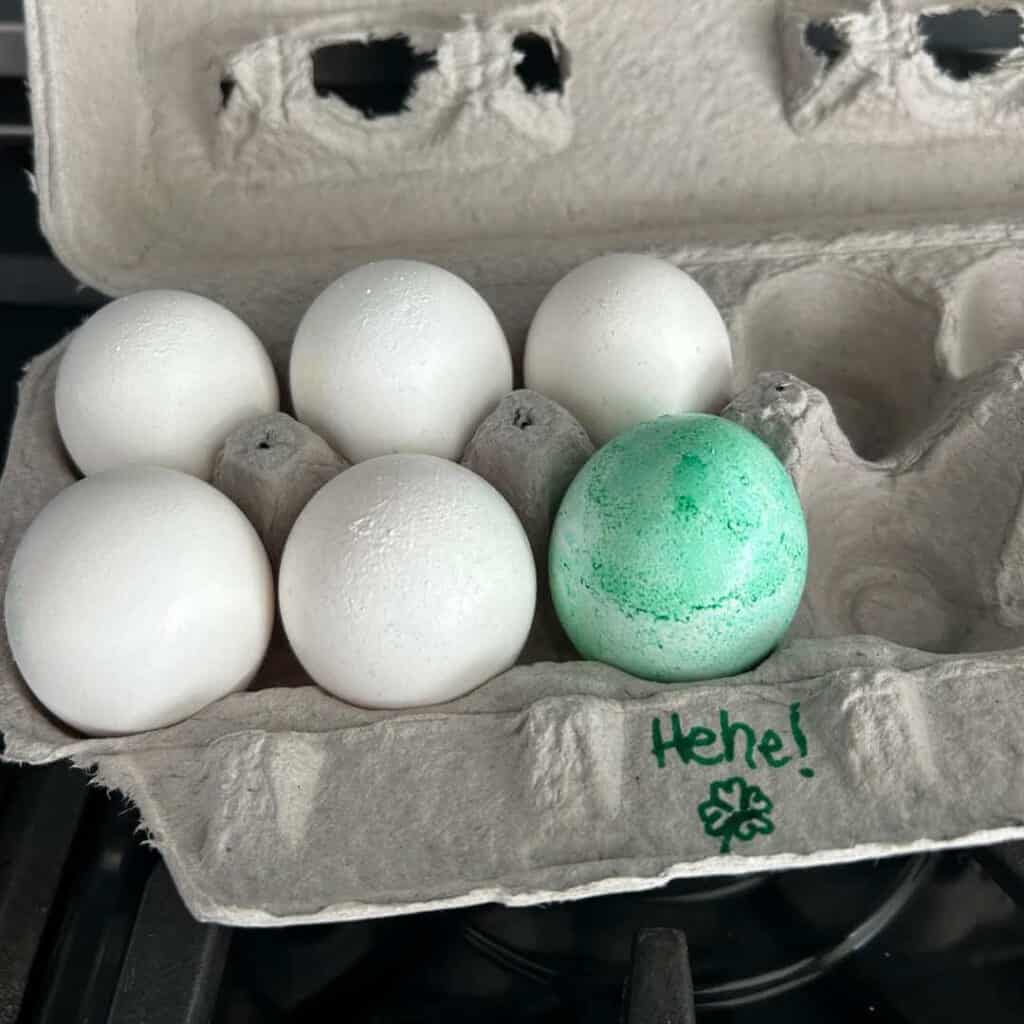
Blended Leprechaun Juice: Serve green juice and replace the label with one that says "Blended Leprechaun Juice."
Leprechaun Lunch: Pack a completely green lunch. Clearly those sneaky leprechauns swapped out their regular food with all green food! Love that idea from the Stuffedsuitcase.com
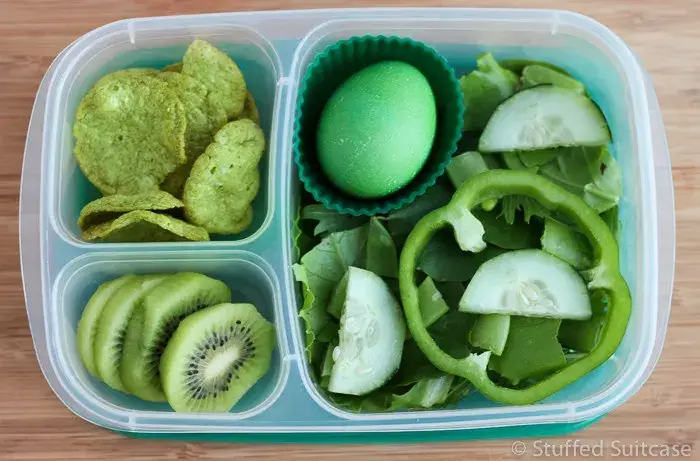
So, whether you’re a parent or a teacher, get ready to sprinkle some leprechaun magic and mischief into your St. Patrick’s Day. With this huge list of last minute leprechaun tricks up your sleeve, you’re guaranteed to create a day full of laughter and surprises. Happy pranking! 🍀✨
Let's mix up your next gathering with games like Hot Potato! Hot Potato is a classic party game that has entertained generations with its simple yet energizing gameplay. Whether you're looking a quick game to play at indoor recess or want to impress the kiddos are your next party, there are plenty of games that capture the same joy. In this article, we'll explore how to play the Original Hot Potato Game and provide a list of 20 fun games like to Hot Potato that will keep your kiddos squealing with joy.
Be sure to also check out our list of Games like Rock, Paper, Scissors!
*As an Amazon Affiliate, I may receive a small commission if you buy anything using one of my links at no additional cost to you. Thank you in advance.
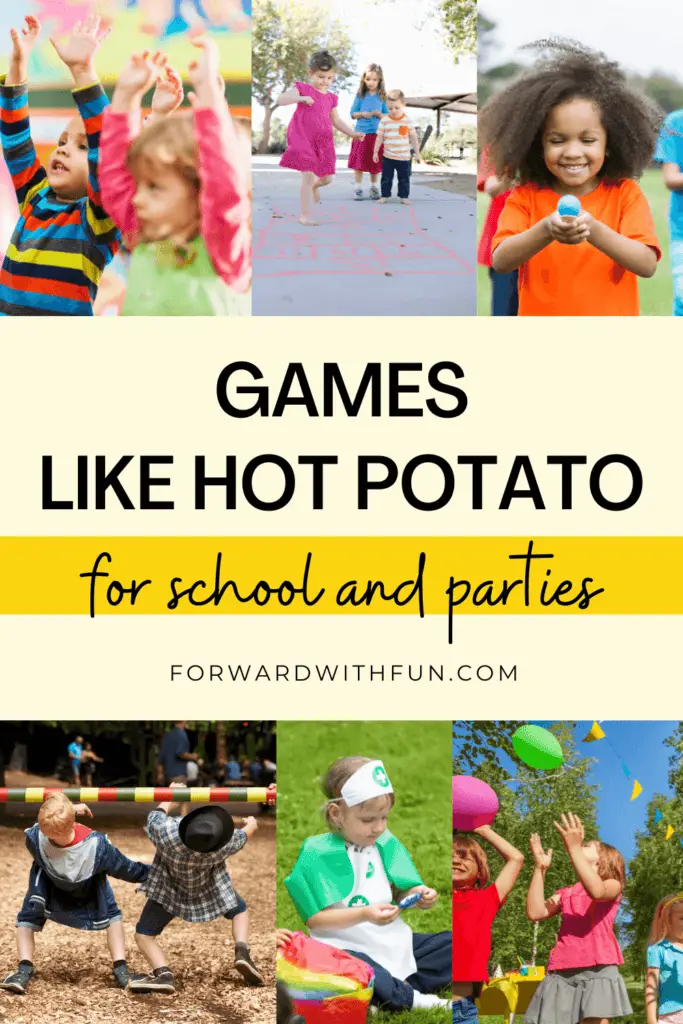
Hot Potato is a game that involves passing an object around a circle while music plays. Here’s how to play:
Hot Potato is great for its simplicity and the excitement it brings, but if you’re looking for similar games that offer a twist on this classic, read on!
Players walk around a circle of chairs while music plays. When the music stops, they must find a chair to sit in. One chair is removed each round until only one player remains. Similar rules to Hot Potato but kids are moving around more! Can be a great indoor recess game if you have the space.
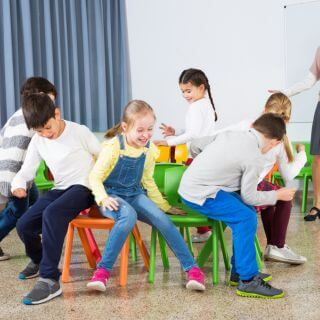
Similar to Hot Potato, but with a beanbag. I love to do this one with my younger students to this song by Georgiana Stewart. The lyrics have the kids speed up and slow down and stop the bean bag to the music. No one gets "out," so it works well with preschool and kindergarten aged kids. My favorite bean bags for this game are these.
Have you watched Bluey? My kids became obsessed with Pass the Parcel after seeing it in an episode of that show! Wrap a small gift in multiple layers of wrapping paper.
Players pass the parcel around while music plays. When the music stops, the player holding the parcel removes one layer of wrapping. The player who unwraps the final layer gets to keep the gift. This one is great for birthday parties. Sometimes there are mini gifts in each layer to include all the kids. My kids say this is their favorite on the list of games like Hot Potato!
Players dance while music plays. When the music stops, everyone must freeze in place. Anyone caught moving is out. This is another great indoor recess game, to get wiggles out when it's too hot or rainy outside!
Again, you don't have to have anyone get "out," and you can choose different styles of movement to incorporate into the dance. "Dance like fish," or "Dance like a frog!" "Dance only with your legs!"
This Hot Potato Alternative was actually played at a Mom's Night Out I went to. Players pass a balloon around without using their hands. When the music stops, the player holding the balloon must pop it using only their body. I don't think it's one for the kids, but it's definitely a hilarious spin on Hot Potato!
In this variation of games like Hot Potato, players pass a silly hat around while music plays. When the music stops, the person wearing the hat performs a fun task or answer a question.
Players sit in a circle, and a bottle is placed in the center. One player spins the bottle, and when it stops, the person it points to must perform a task or answer a question. This game adds an element of surprise and quick thinking, similar to the unpredictability of Hot Potato. You can use it to carve out group bonding with silly tasks like "Do your best monkey impression!" or ask questions that help students get to know each other better like, "Who in your family do you most look forward to seeing?" You can also use a regular board game spinner.
Players stack and unstack cups in a specific sequence while music plays. If you mess up or take too long, you’re out. Ya'll know I love a cup stack challenge and even have cup stacking challenges for sale that teach reading and math. They would be great for this game!
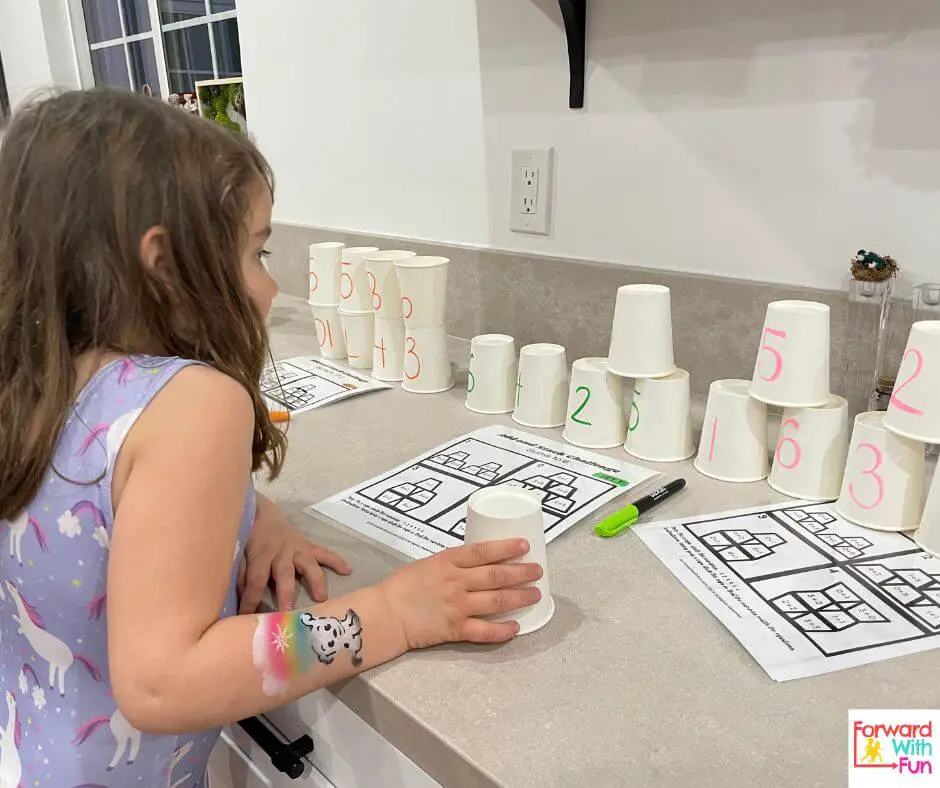
Players sit in a circle. One player walks around, tapping others on the head while saying "duck." When they say "goose," that person must chase them around the circle. If they catch the person who "goosed" them, that person becomes the next "ducker." This is a great cooperative learning game that can build class morale!
Players hold a balloon between their knees and race to a finish line. The challenge is to keep the balloon from popping or falling to the ground while moving quickly. This game combines physical activity with the excitement of keeping the balloon intact, creating a fun and lively atmosphere.
Players take turns bending backward under a limbo stick while music plays. The stick is lowered after each round. If you touch the stick or fall, you’re out.
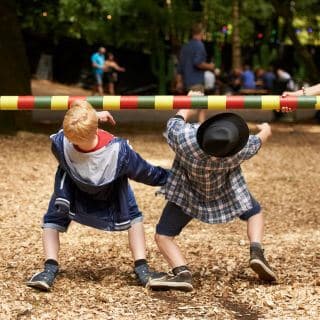
Players act out a word or phrase without speaking while their team guesses. Quick thinking is key, similar to Hot Potato.
Like the game of Hot Potato, kids are in a circle, this time sitting. A Memory Tray is brought to the center of the circle with about 20 objects on it and the kids have 1 minute to observe all the objects from where they're standing. The adult then removes the tray and takes away 1, 2, or 3 objects. The memory tray is returned to the circle and kids need to figure out what was missing. You can play this game in teams where the teams that get the objects first earn a point.
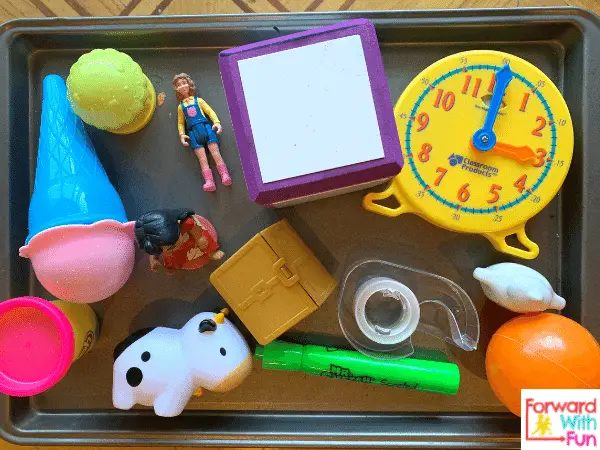
Players follow commands only if prefaced with "Simon says." If "Simon" doesn’t say "Simon says," and you follow the command, you’re out.
This might be my favorite indoor recess game ever. Each corner of the room is designated a number 1-4. Players choose a corner and go stand in it while the adult is closing their eyes. Then the adult chooses a number between 1-4. Those in the chosen corner are out. Similar to Hot Potato, the last person standing is the winner
Similar to Freeze Dance, but with a focus on remaining still like a statue when the music stops. In many games like Hot Potato, the music is the driving force and kids have to be focused to pay attention to when it starts and stops!
This free STEM lesson plan I created can be used to play a game like Hot Potato. You can use music with this lesson, to save the little bears from the rising lava. Kids will rescue bear counters by seeing how many they can balance on the structure they make out of cups before the music stops!
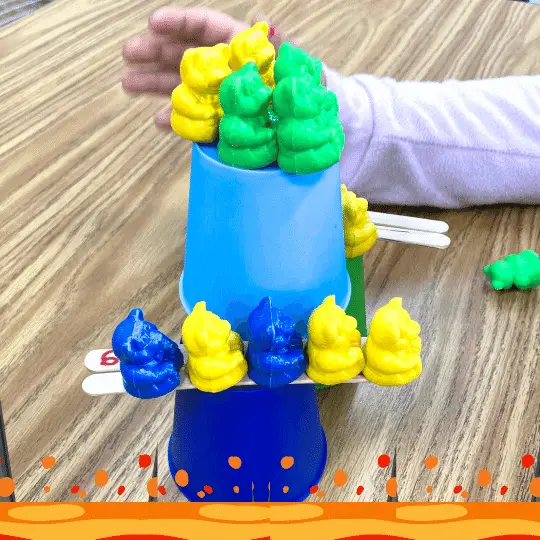
Teams of 3-4 race to pass a plastic Easter Egg down a line without dropping it. Alternate using tongs to a bucket to tongs to a bucket to get to the other side. You can also use a large spoon to make it extra challenging. The fastest team wins. Just like Hot Potato, don't drop that egg!
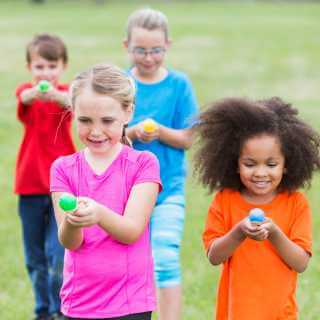
Want kids to be moving around and getting their wiggles out while developing their commuication skills? This Hedbanz game is something almost all my coteachers have at school. Kids wear a picture on their head that they cannot see. They have to go around to other kids, also wearing the Hedbanz, and ask questions that will help guide them to guess what their picture is! This ends up being a hilarious experience, and the kids all get to know each other, making it great for parties, mixers, and classrooms.
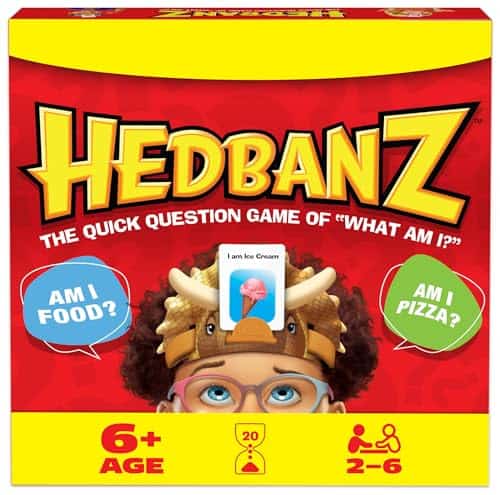
Players place their hands and feet on colored circles according to the spinner's directions. This is the Ultimate Twister board for larger groups because it has twice the space! The game becomes more challenging as more players are added. As kids fall or lose their placement they are out! You can also make this game more academic by attaching sight words or CVC words to each of the dots and calling out which WORD kids need to stand on.
These games like Hot Potato offer various ways to enjoy the thrill of fast-paced, active play. From classic party games to inventive twists, there’s something here for every occasion. Whether you’re hosting a birthday party, family gathering, or just having fun with friends, these games will keep everyone entertained and engaged. Try a few of these out and see which ones become your new favorites!
Looking for a free Captain Cook Crossword to help make learning history more fun? Look no further. This simple crossword is easy to download, requires no subscription, and it's totally free. Why? I love to make education more accessible for all and help other teachers out.
Who knew that Captain Cook crosswords for kids were in such high demand with so few resources? In a hurry? Scroll to the bottom of this post to download your crossword right now!
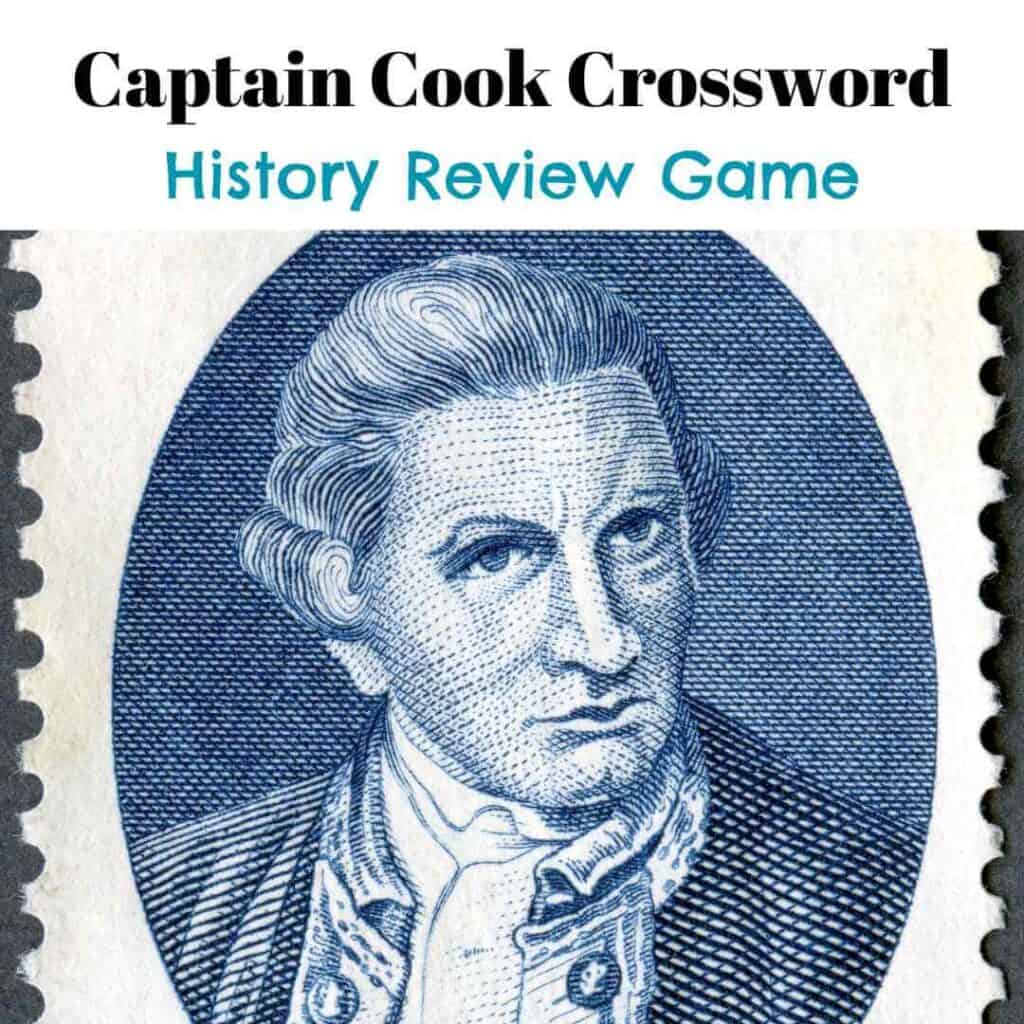
The free crossword also includes an answer key on the back. Don't need this right now, but think it's an excellent resource? Make sure to Pin this crossword on Pinterest.com.
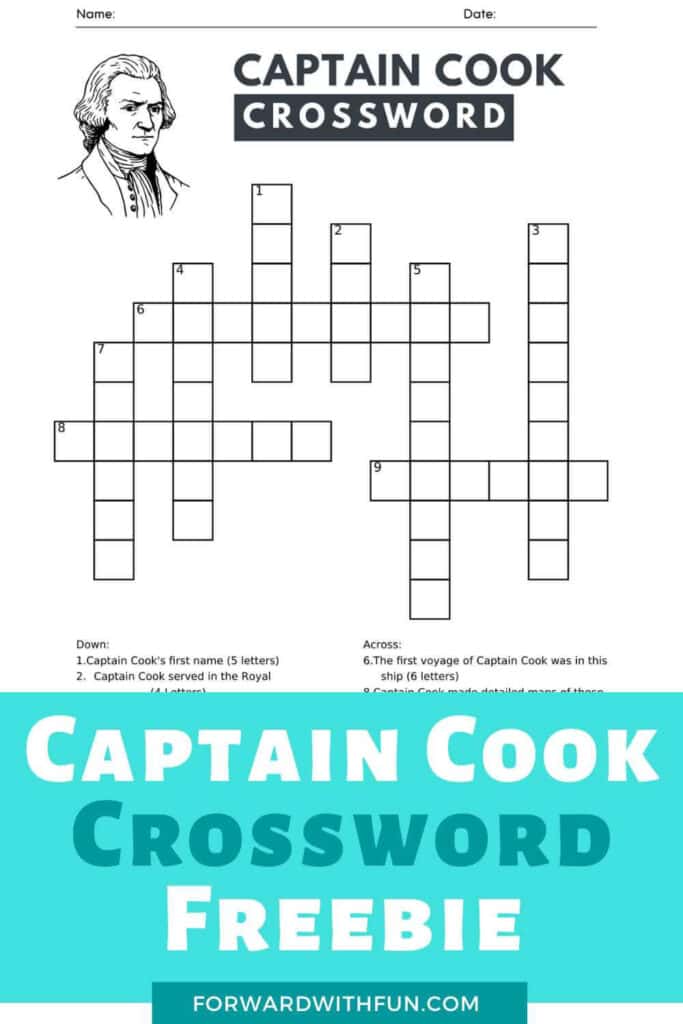
Have kids work in partners to create their own questions and answers that have to do with Captain Cook. Use a crossword puzzle generator online (like puzzle maker or word mint) to plug in their historical Q & A's to make their own crossword for kids! These can be put in a "may do" station for when kids are finished early with their work. They'll love doing one another's crosswords and inadvertently, they'll be memorizing their Captain Cook facts!
I hope you enjoyed this Captain Cook crossword and answer key. I know it's a bit different from the usual reading activities you see on my blog, but whenever I create a resource for my students, I like to make it available to all of you!
Is there a resource you're hoping to see more of? Let me know in the comments or message me at [email protected]. I'd love to hear from you.
By popular demand, the printable Cup Stacking Silent E Games are finally here! These challenges will have your first graders stacking their way to better reading skills 🎉 and reading the difficult silent e words they need to master this year.
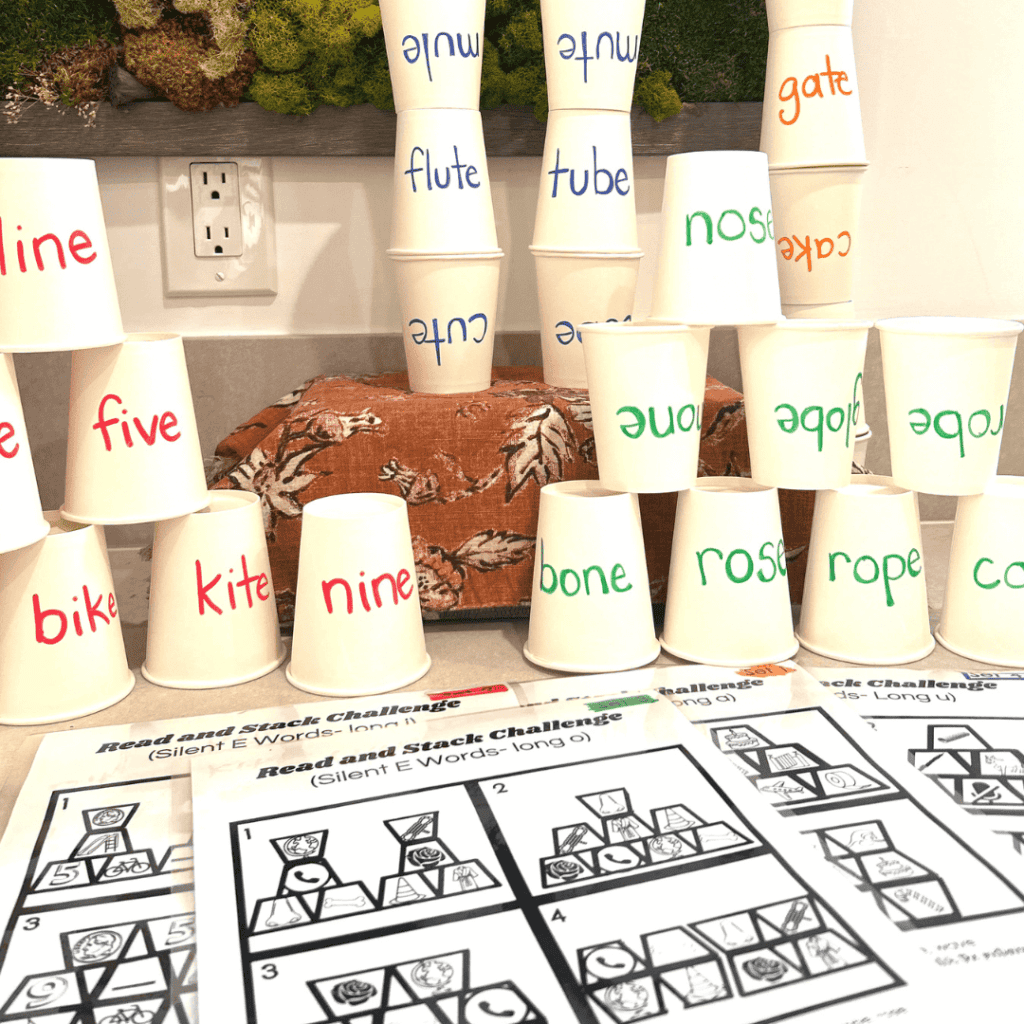
*As an Amazon associate, I may get a teensy commission from any purchases made through my links. Thank you!
Silent E is a powerful little letter that makes big changes in our words. It is often called "Sneaky E,"
"Bossy E", "Magic E," or even "Mama E" who tells the vowels to "say their names!"
Silent E transforms words like "hop" into "hope" and "tap" into "tape," and is taught in first grade, though some children learn it earlier or later.
To help first graders master this concept, I've reinvigorated the super viral original CVC cup stacking challenges to now include CVCe words! Students will use printable silent e games and stack cups with words on them to match the pictures in each of the 16 challenges.
Do you want even more cup stacking fun? Ever since I put these on Pinterest, all my cup stacking challenges have been selling like hot cakes. Try the consonant blend challenges, addition challenges, and the subtraction challenges!
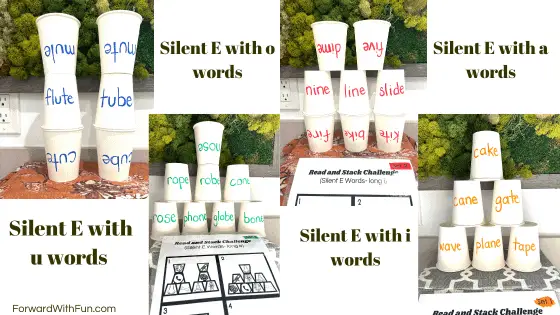
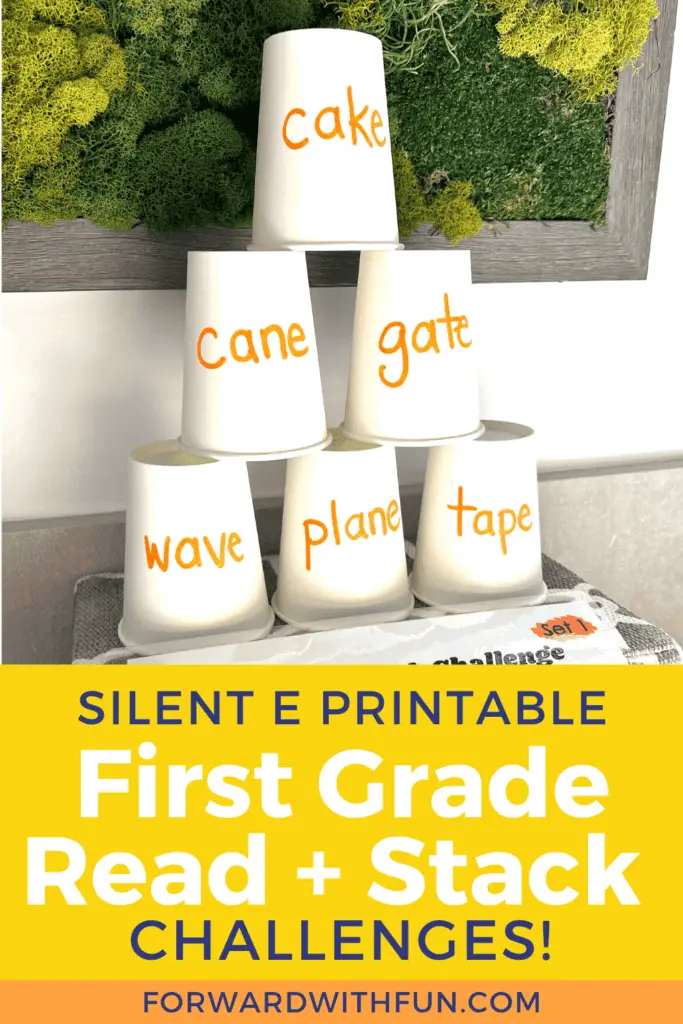
By incorporating the Cup Stacking Challenge into your classroom, you’ll create an engaging and dynamic way for first graders to practice silent e words. Watch as they stack, match, and learn their way to literacy success! 📚🏆 Phonics really is fun!
Ready to get stacking? Download your silent e games today and let the fun begin!
While teaching first grade intervention, I had a hard time finding engaging consonant blends activities that would capture my struggling readers' attention! So I took our wildly popular kindergarten cup stacking challenge and developed a version that incorporates all the blends my first graders needed to learn.
Print and begin stacking cups to match the pictures. Some challenges include 6 cups, some 8, and some 9! I had to pry these cute little cups from my soon-to-be first grade daughter's hands, who can't resist a hands-on approach that enhances learning through play.

*As an Amazon associate, I may get a teensy commission from any purchases made through my links. Thank you!
The six sets of consonant blends activities will be a comprehensive way to practice reading consonant blends with first graders. I would even suggest them to advanced kindergartners and second graders needing more practice.
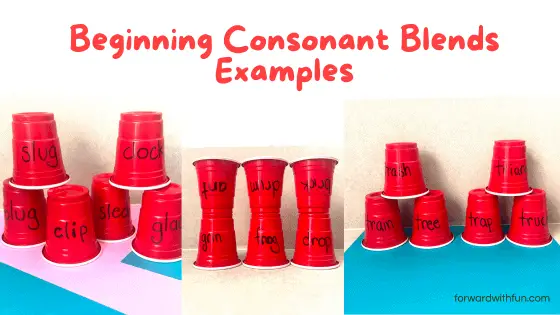
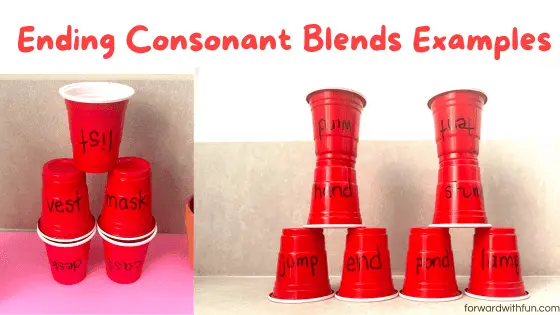
What you need to play:
To organize, you can write the words in different colors, as shown with the subtraction cups, or use labeling stickers like I did for our consonant blends cups. Some challenges have 6 cups, some have 8, some have 9. So you have differentiation too! Win, win!
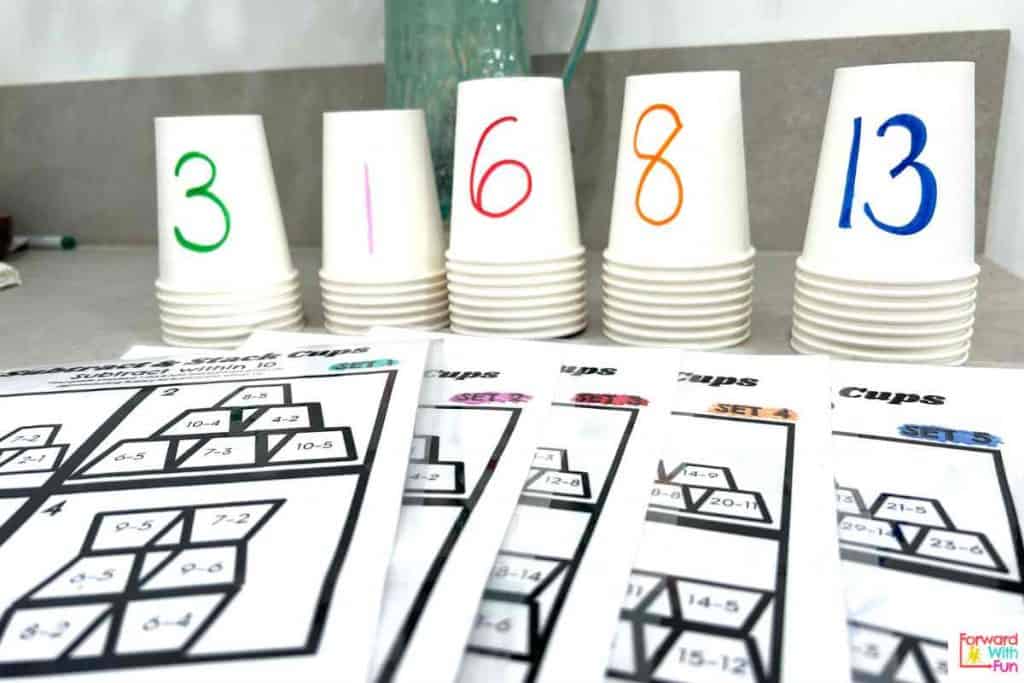
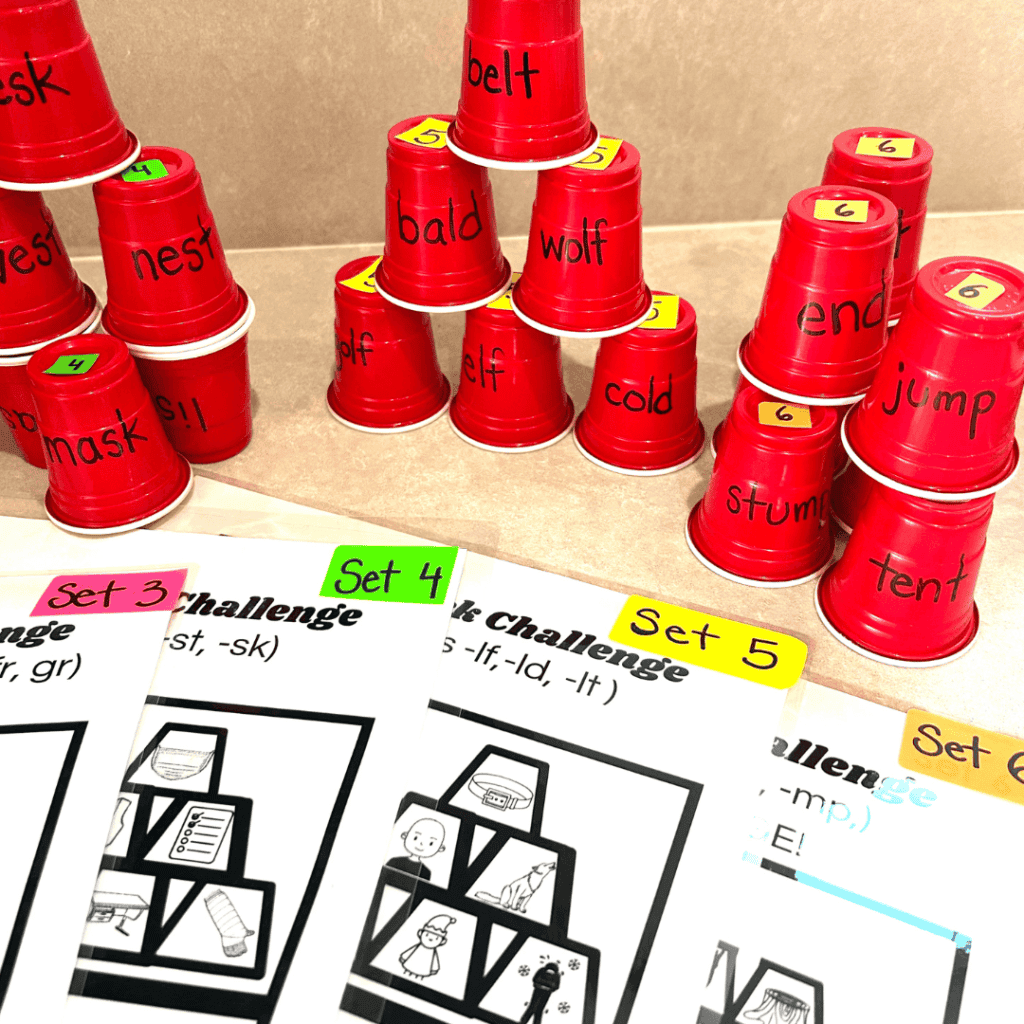
Teaching blends to first graders involves a few key things:
Before kids read and write blends, they need to be able to hear that the blend is made up of multiple consonant sounds. Orally segmenting works into their smaller parts and blending sounds into whole words is key!
Example of what I would say while teaching this skill: What word am I making? /s/ /k/ /i/ /m/. Blend the SOUNDs together to make the word "skim!" Now let's segment that word. Put up 4 fingers and touch a new finger for each sound: /s/ /k/ /i/ /m/.
I find that when I explicitly teach consonant blends, then follow up with a game, the information gets put to practice in a meaningful way. For direct instruction, I love the free resources provided by UFLI Toolbox! They have a great scope of sequence that helps me teach consonant blends in an order that make sense to new readers.
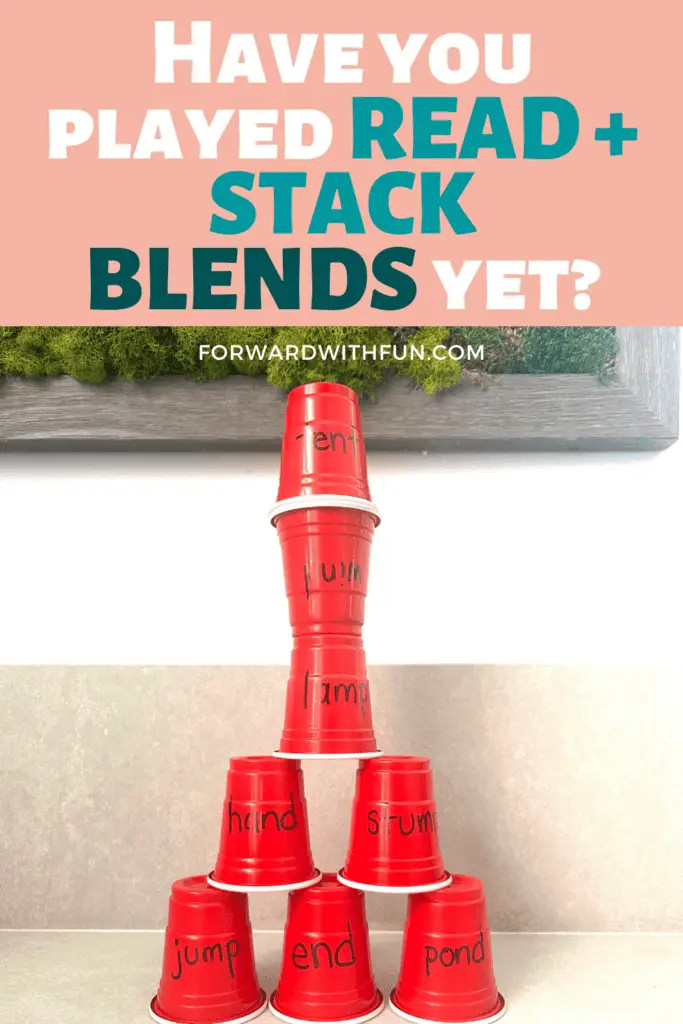
The key to teaching blends in a fun way is to incorporate games and activities that appeal to young learners. Activities like cup stacking with blend words provide a tactile experience that keeps children engaged while they learn. They'll be less flustered by the new and possibly difficult skill, because they'll be in a fun frenzy of cup stacking. It's almost like they don't know they're learning!
First graders typically begin with two letter beginning consonant blends such as "bl," "cr," "dr," in words like blip, cram, and drop. Kids are most likely to struggle with the "tr" confusing it for "chr" and the "dr" confusing it for "jr." I find that making an anchor chart for those specific sounds can help serve as a visual reminder.
The Cup Stacking Challenges for consonant blends not only include all the beginning blends listed but also the very important ending blends! You'll find ending blends with n, m, l, and s in these activities in words such as jump, desk, hand.
When teaching blends to first graders, it's beneficial to start with blends that appear frequently in simple, everyday words. I always begin with beginning consonant blends that include the letter L, then I move on to ones that have the letter R next. Focus on blends like "bl," "cl," and "fl" initially, as they are encountered early in basic vocabulary and are easier for young learners to grasp. As children become more confident, gradually introduce blends that are slightly more challenging but still commonly used.
Ready to try these engaging consonant blends activities with your first graders? Explore our printable resources designed to make learning blends a delightful adventure!
Download your First Grade Frenzy Consonant Blends Games Now: bring joyful learning into your classroom!